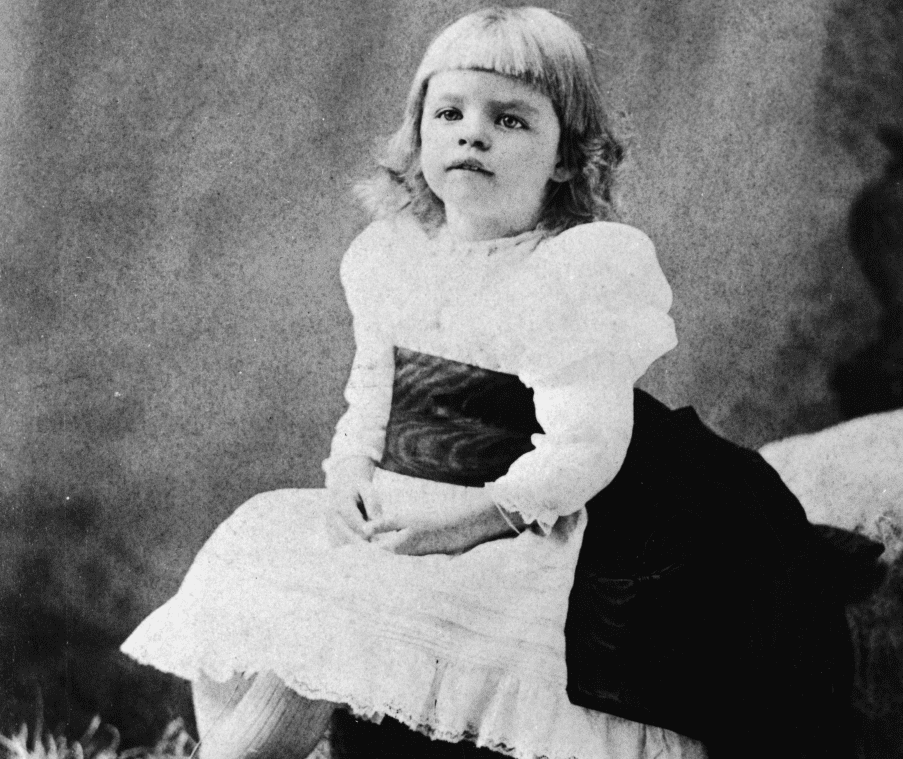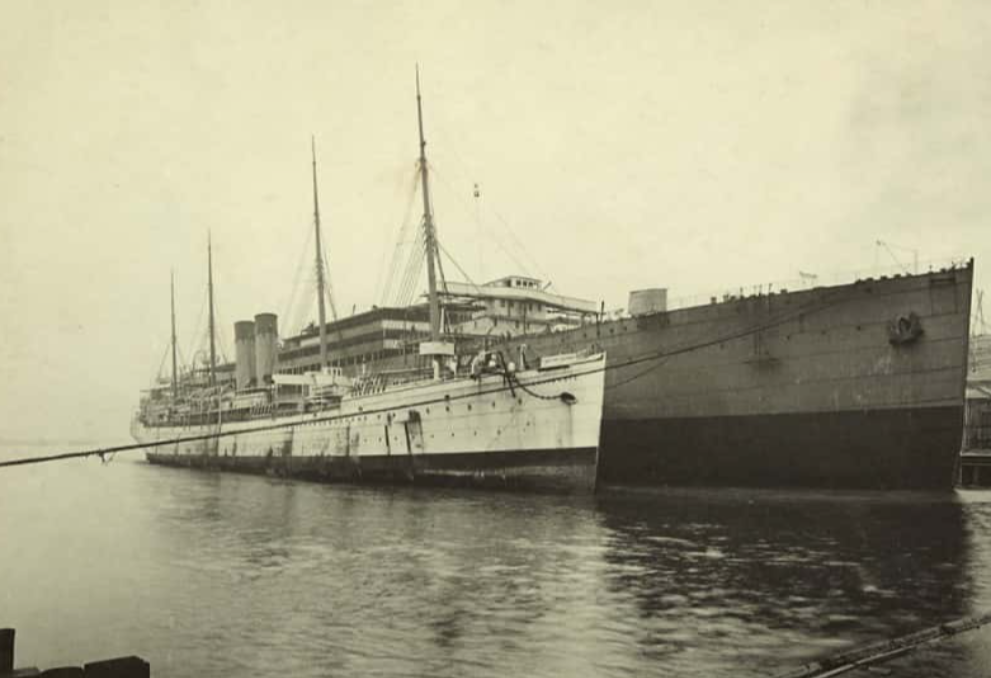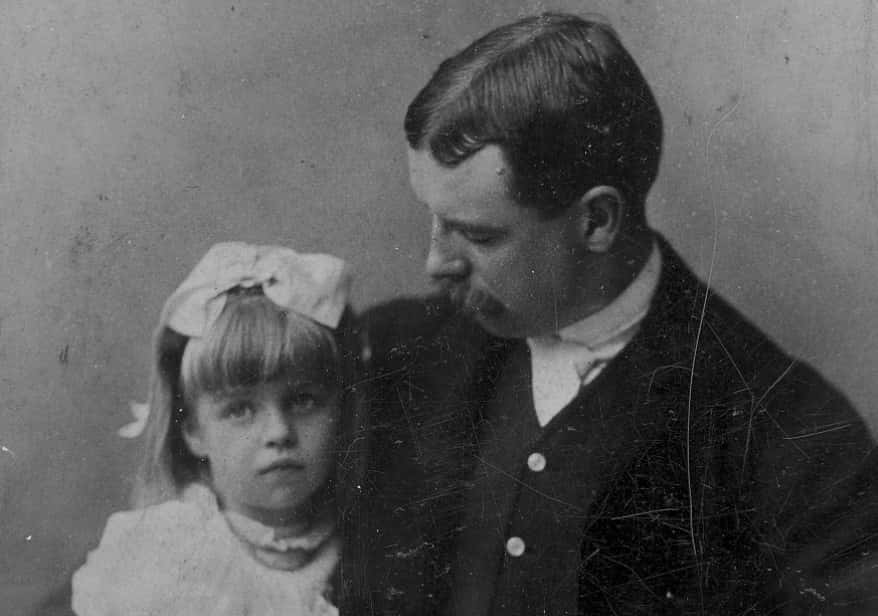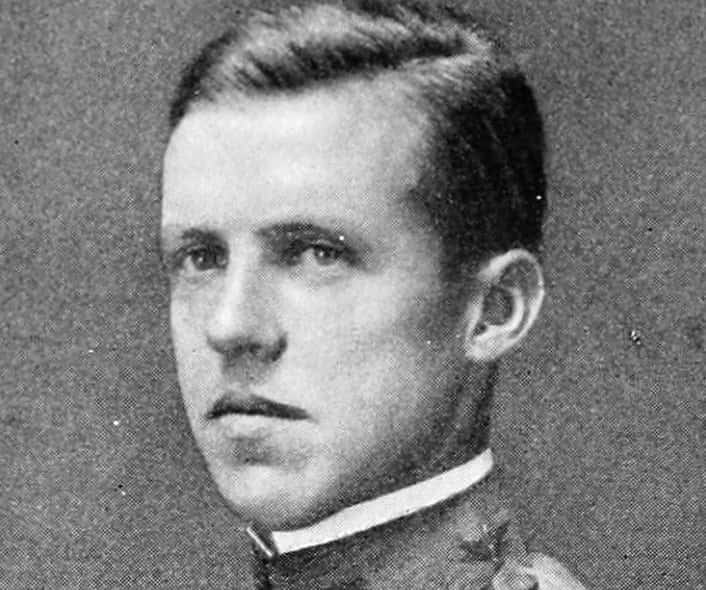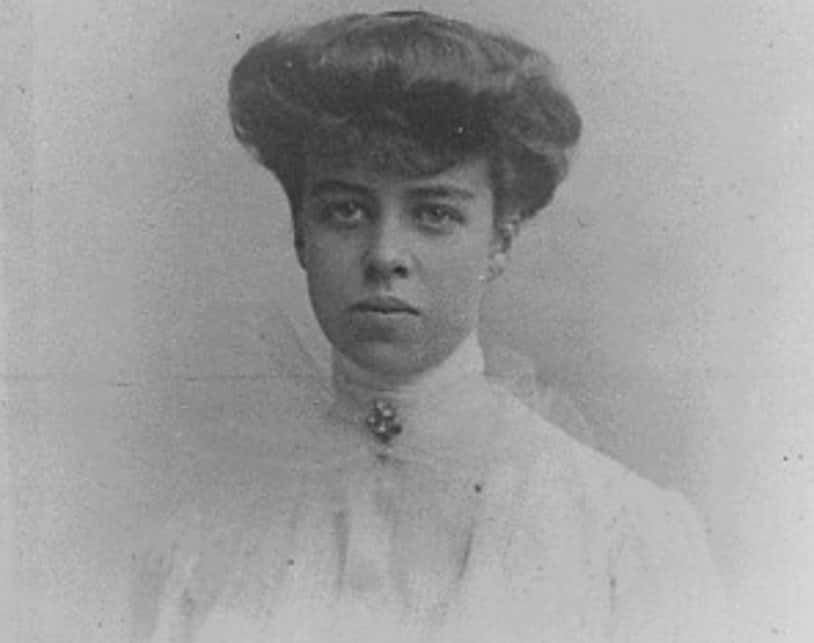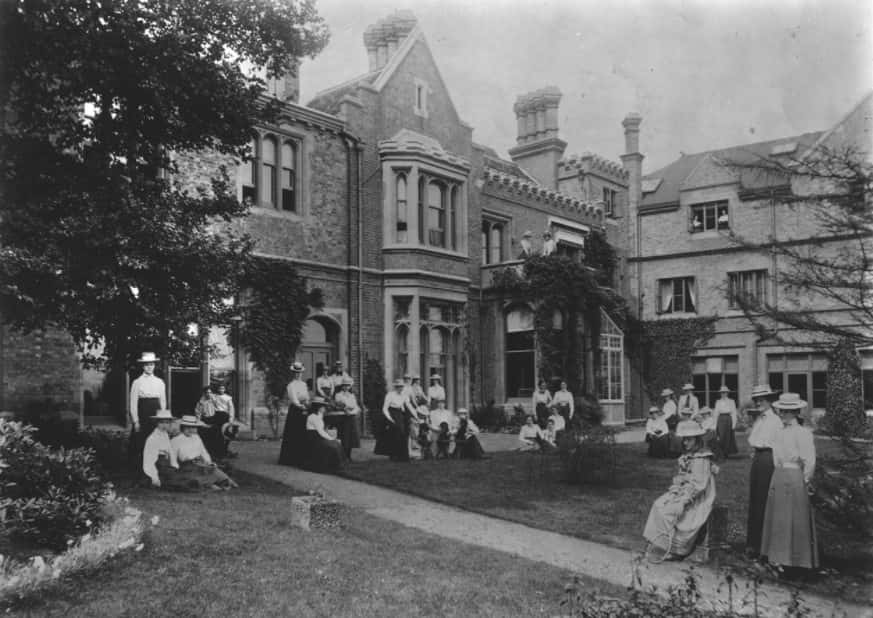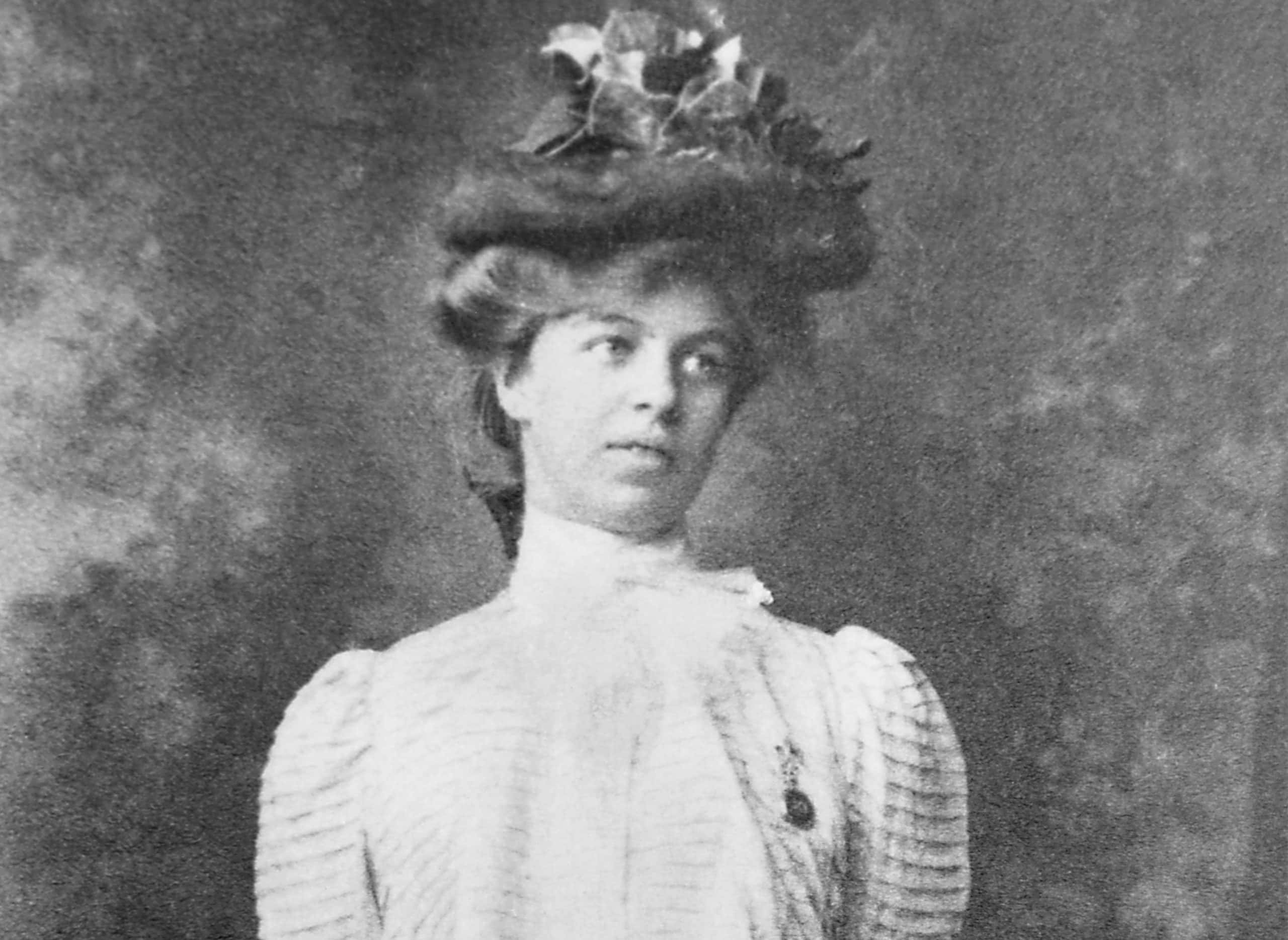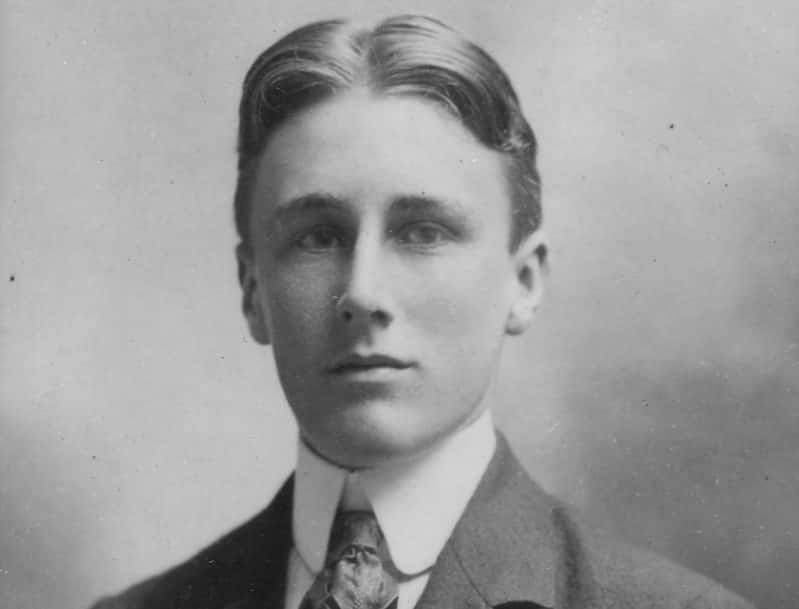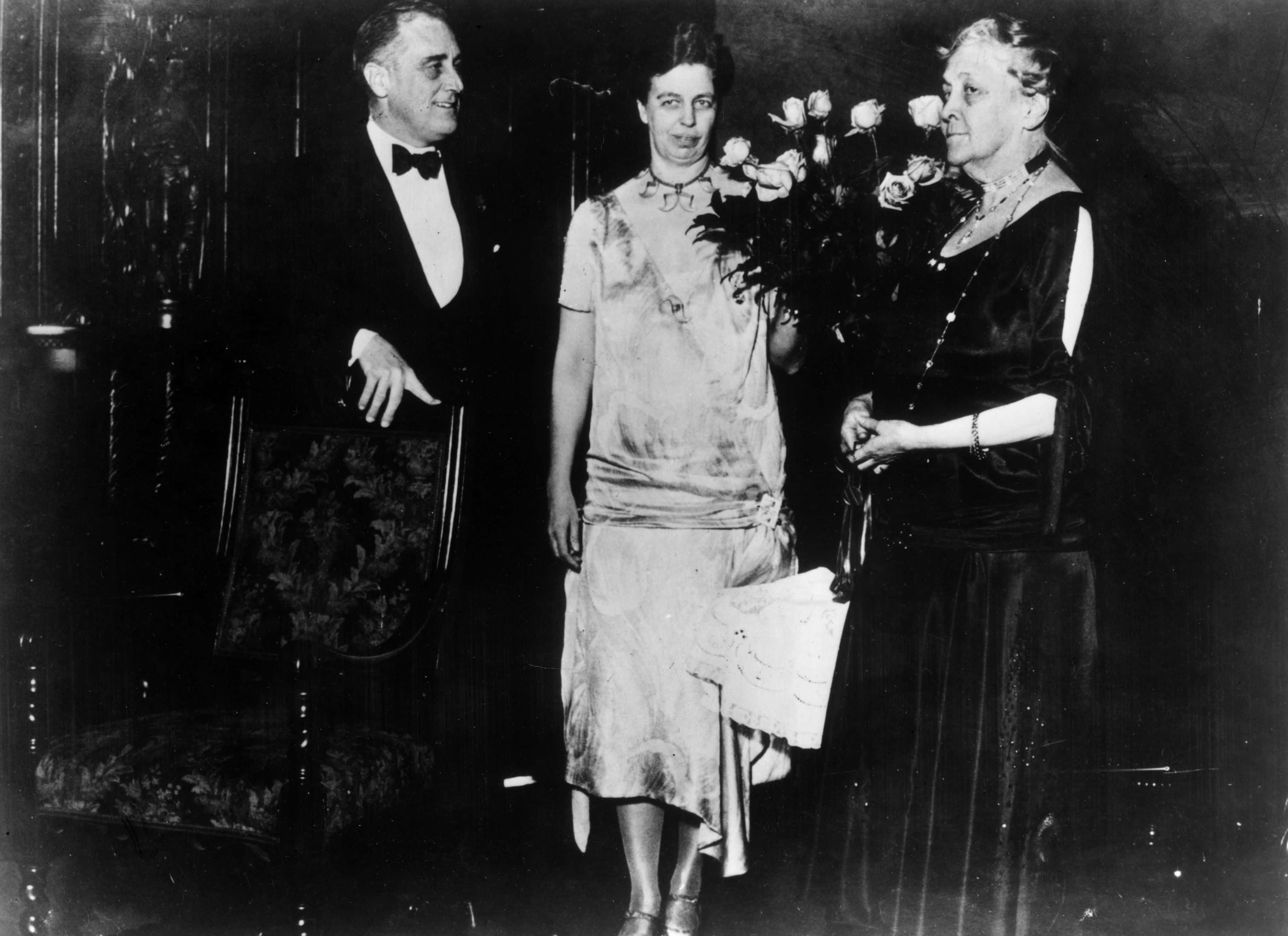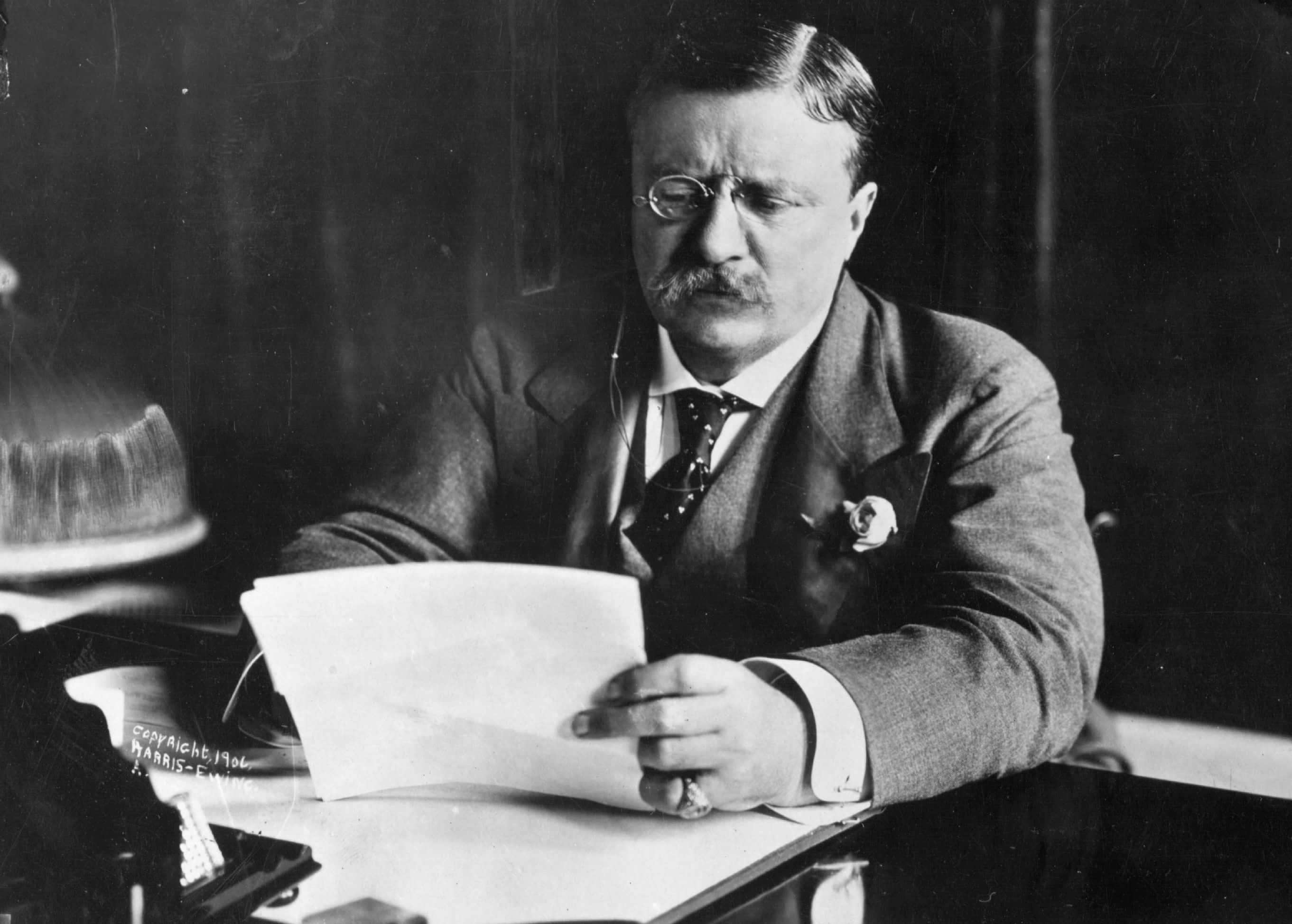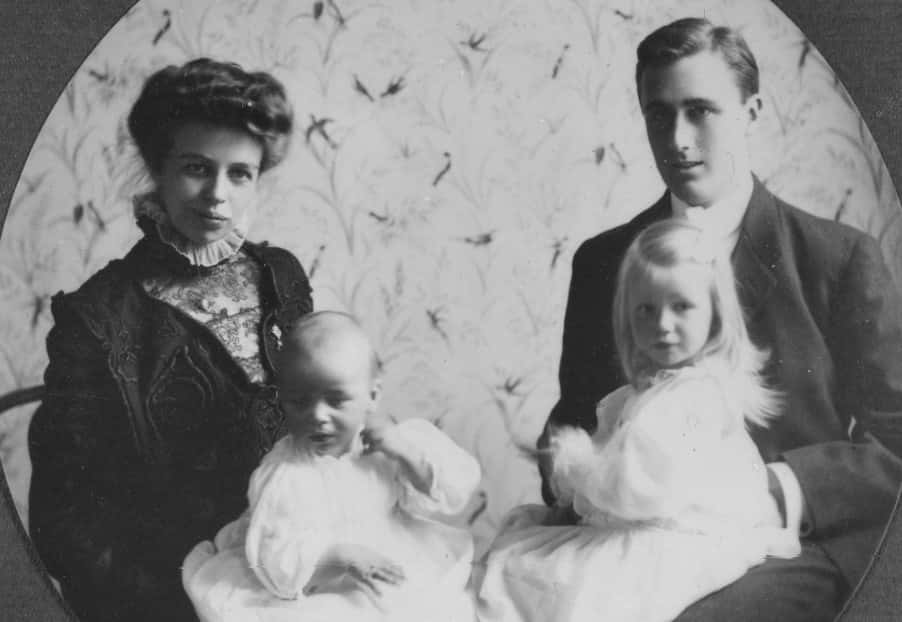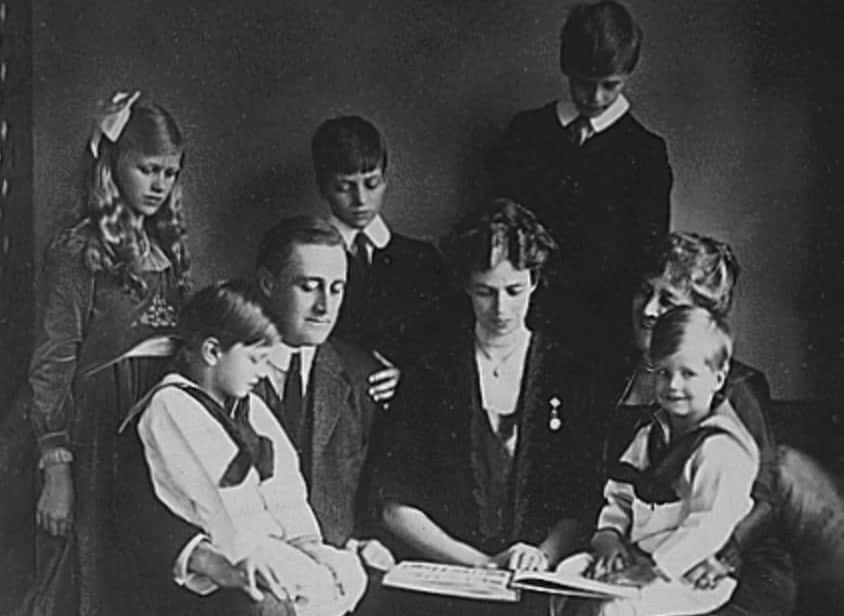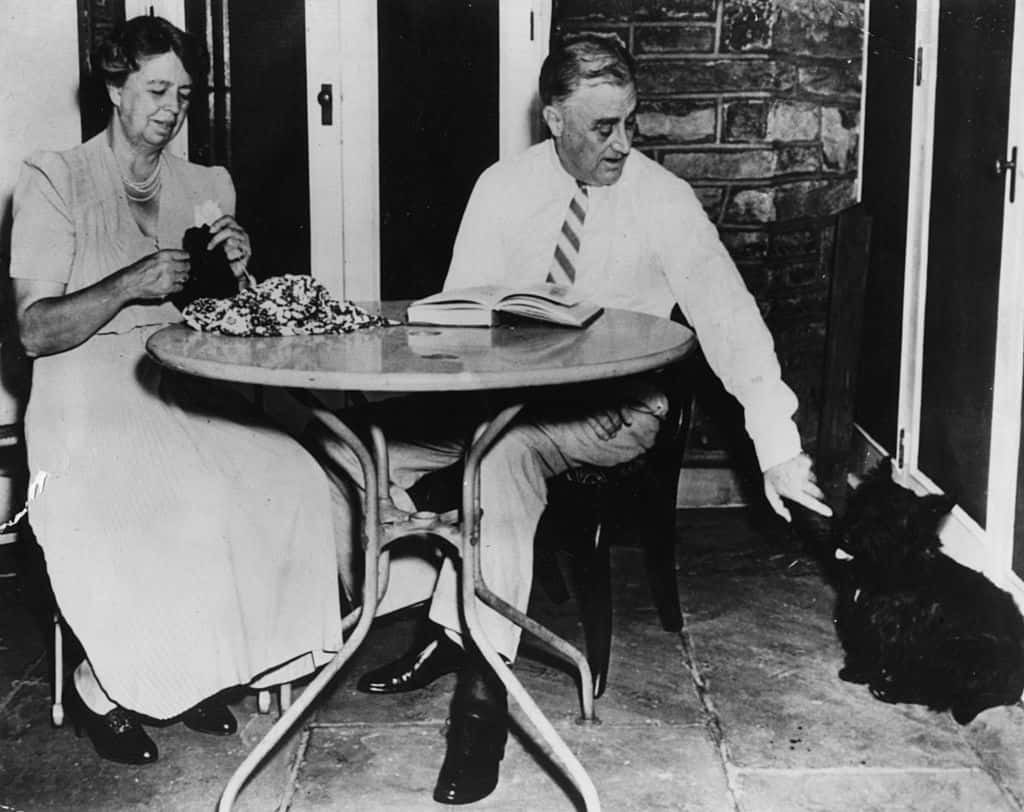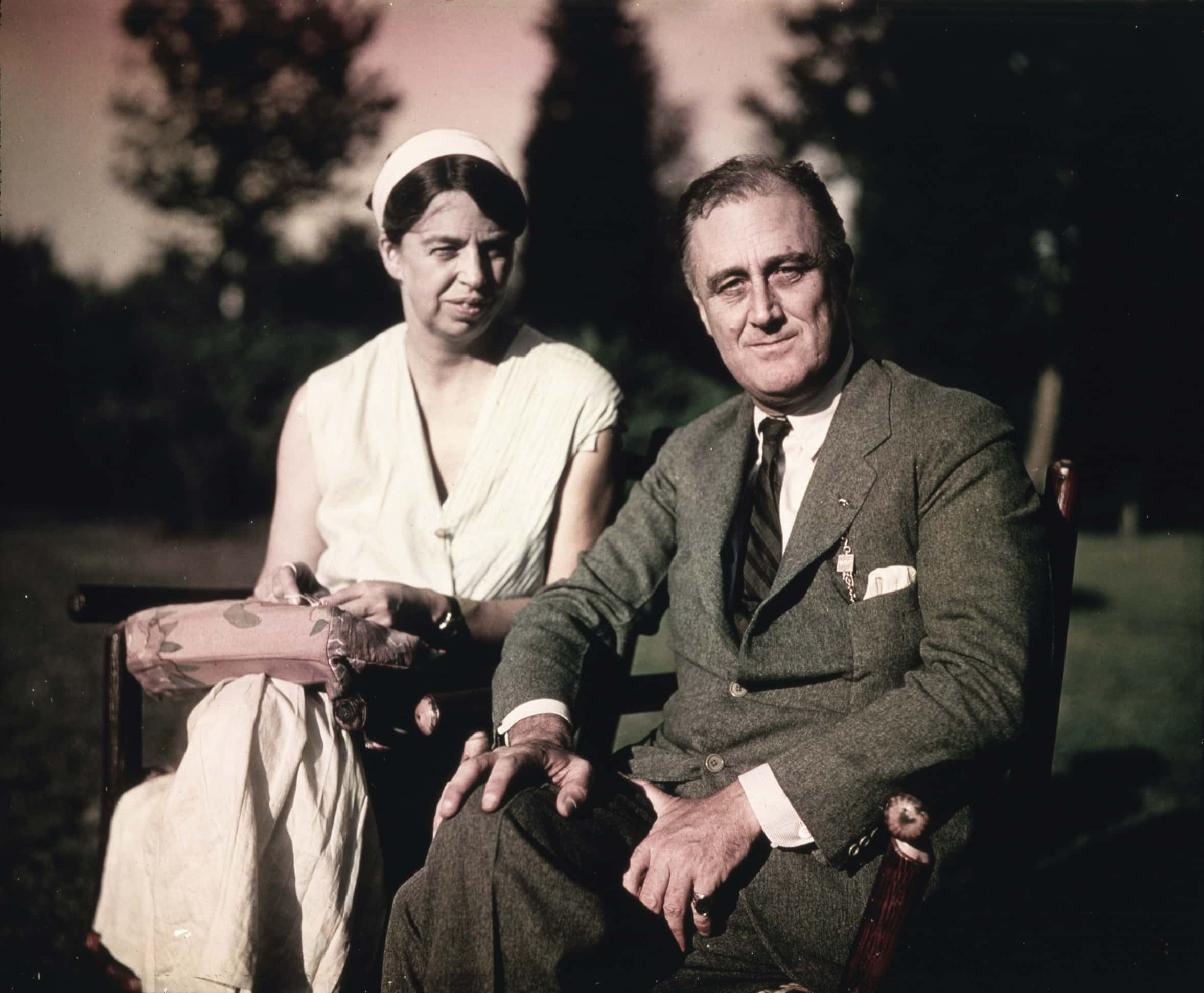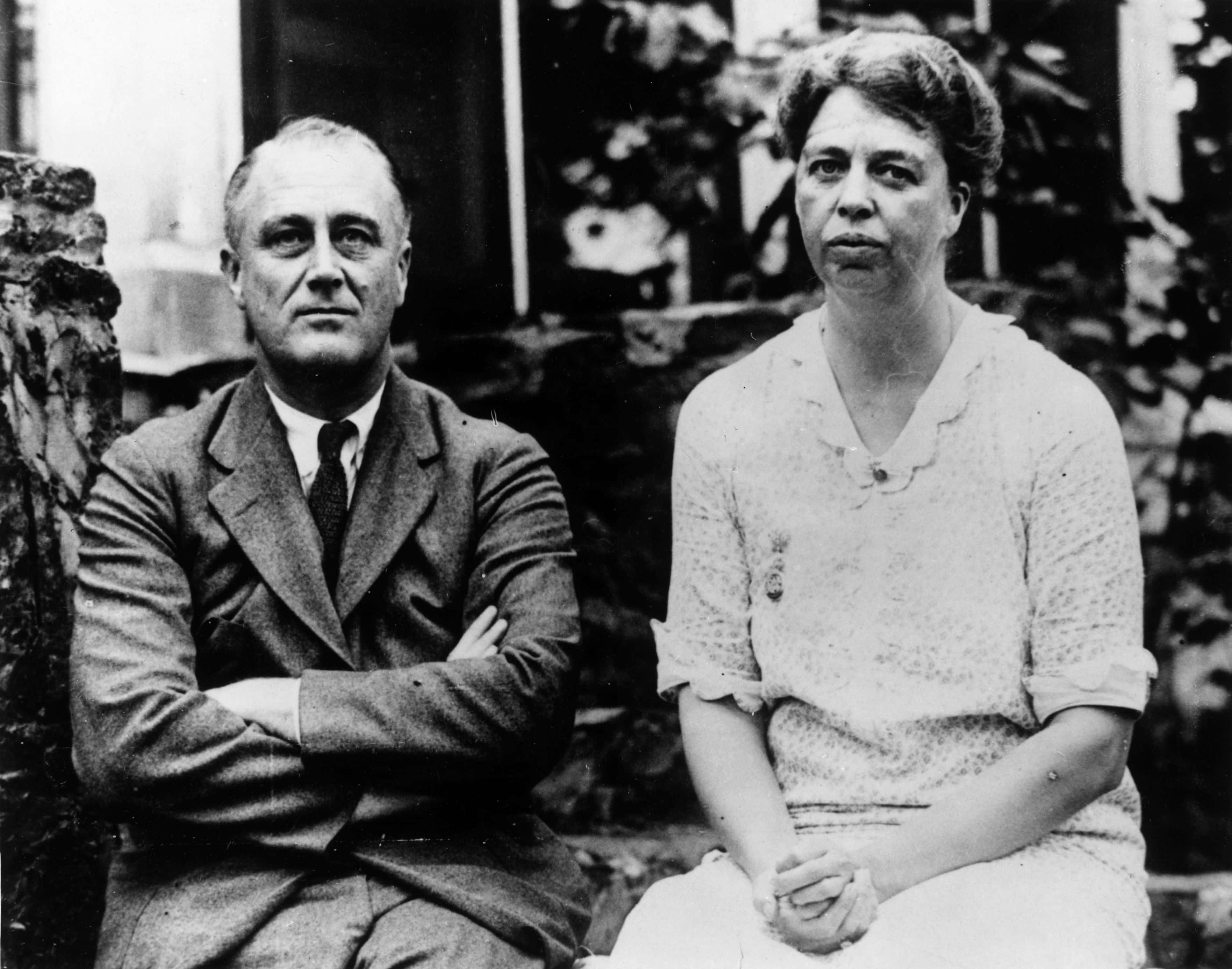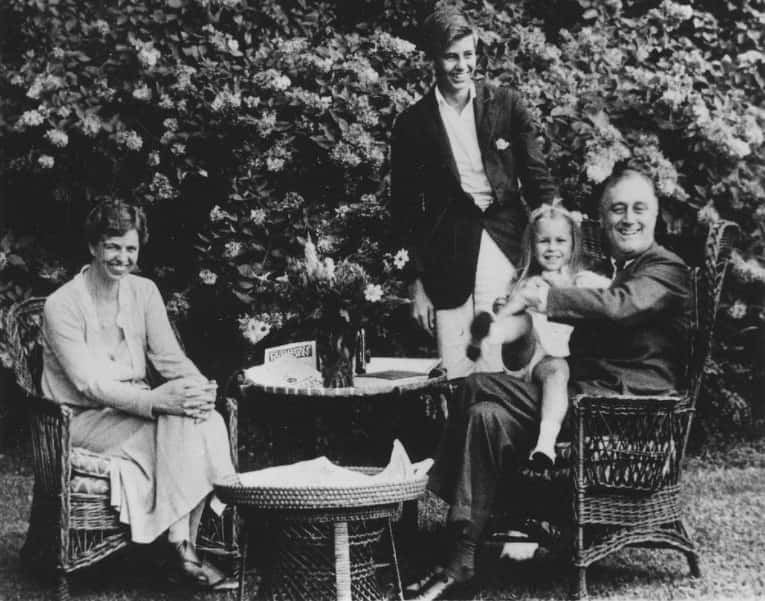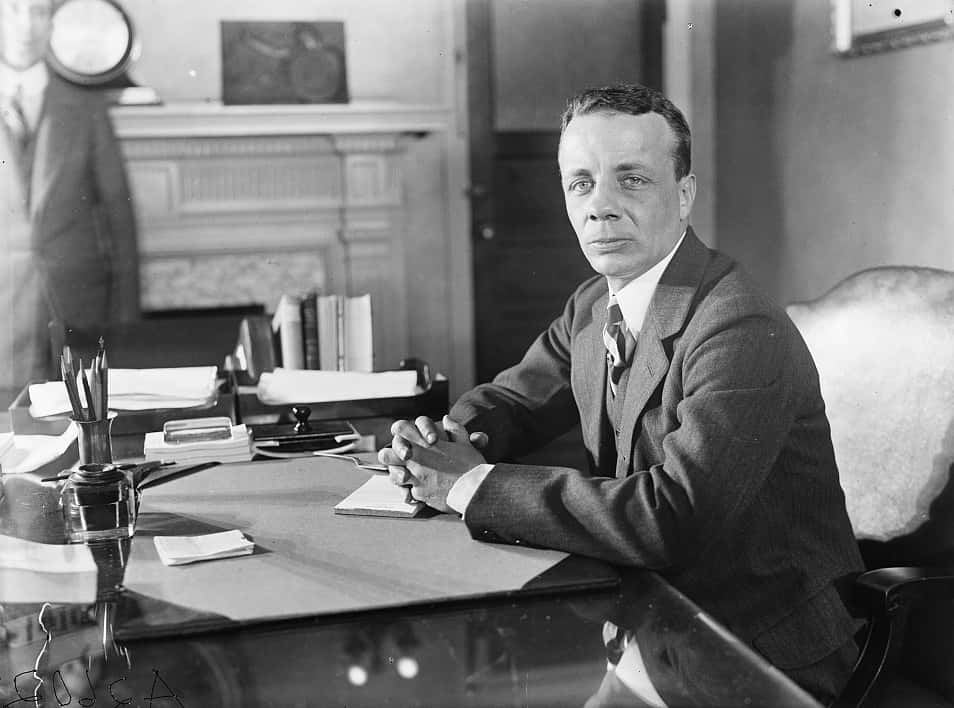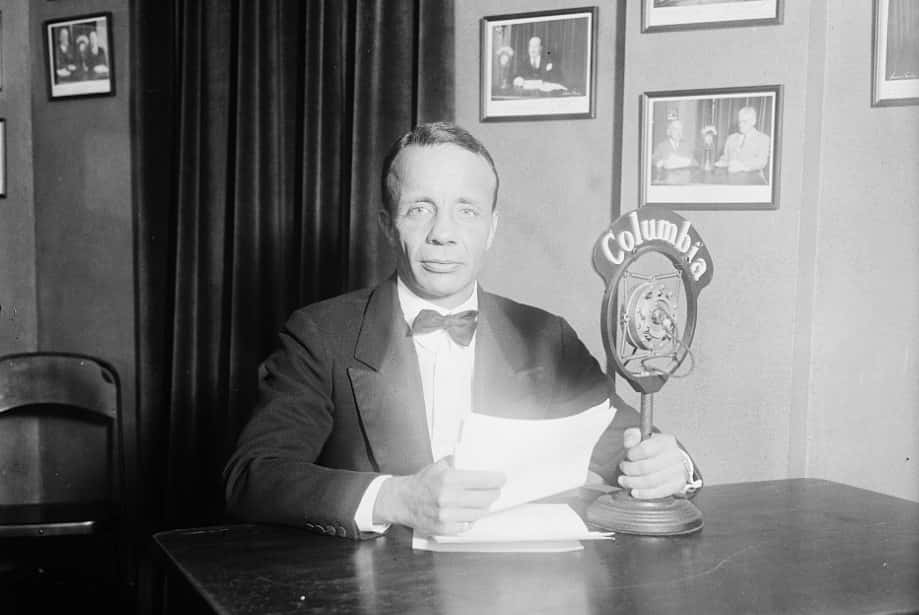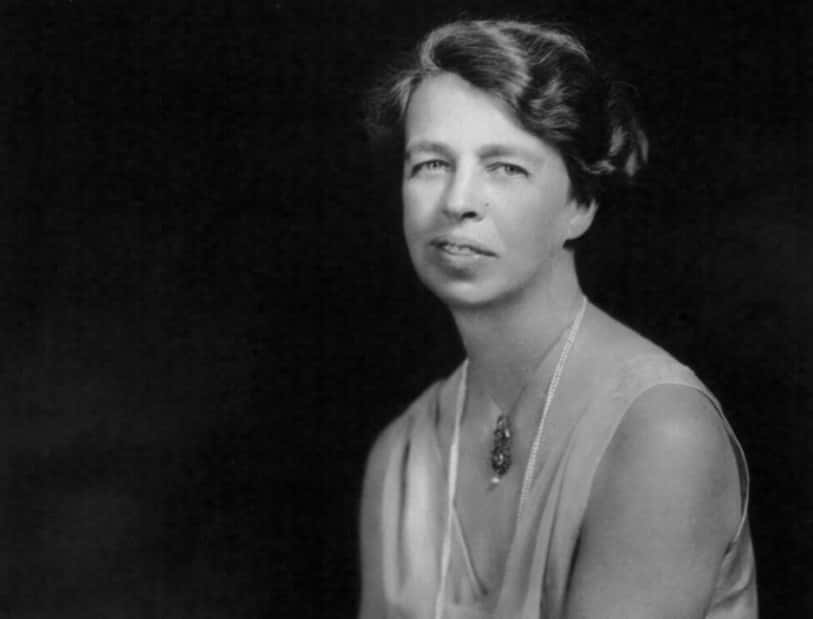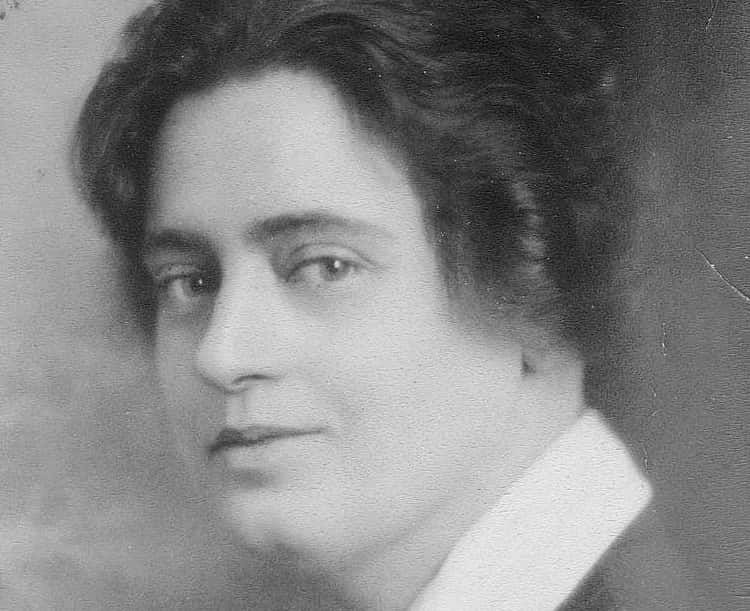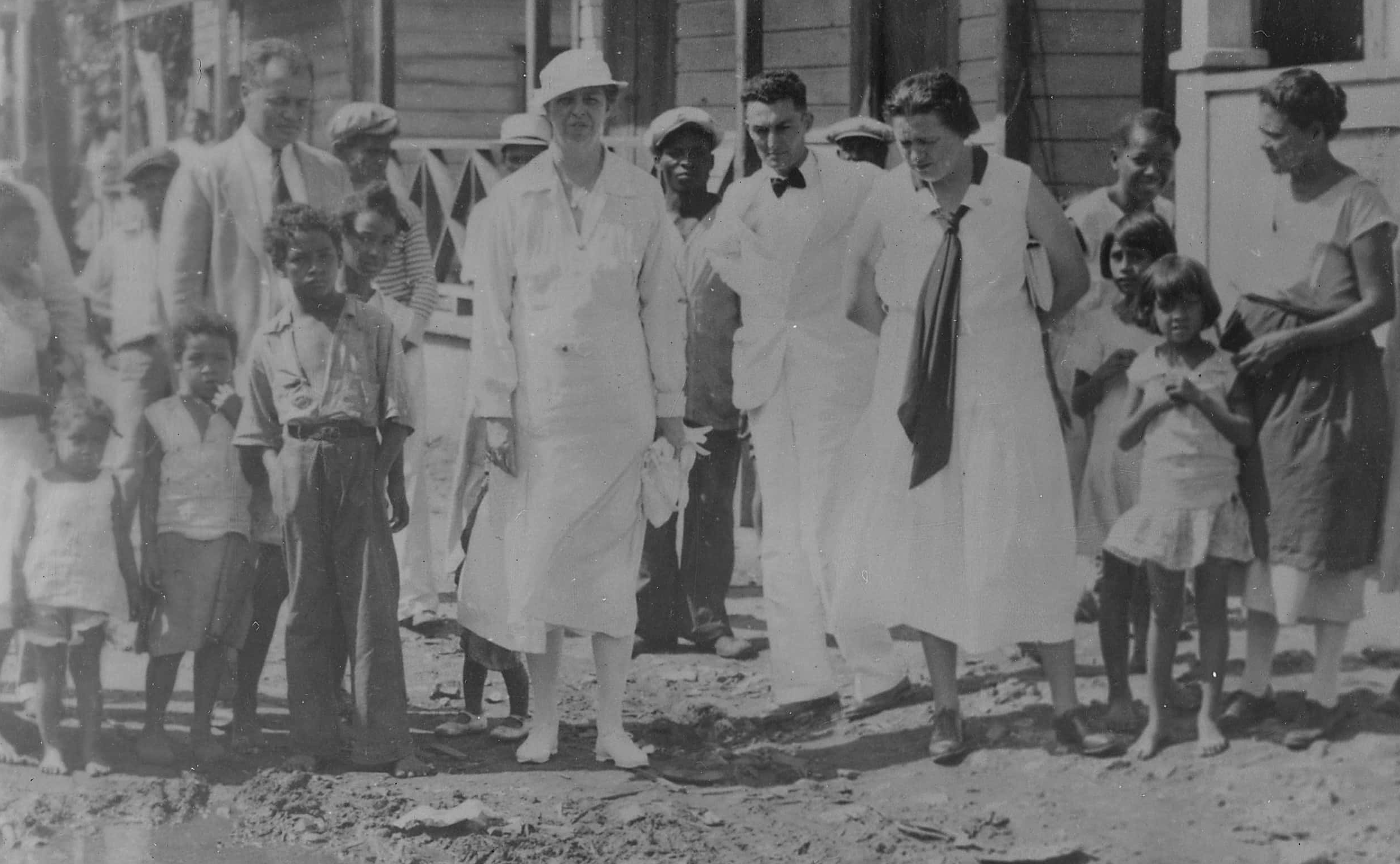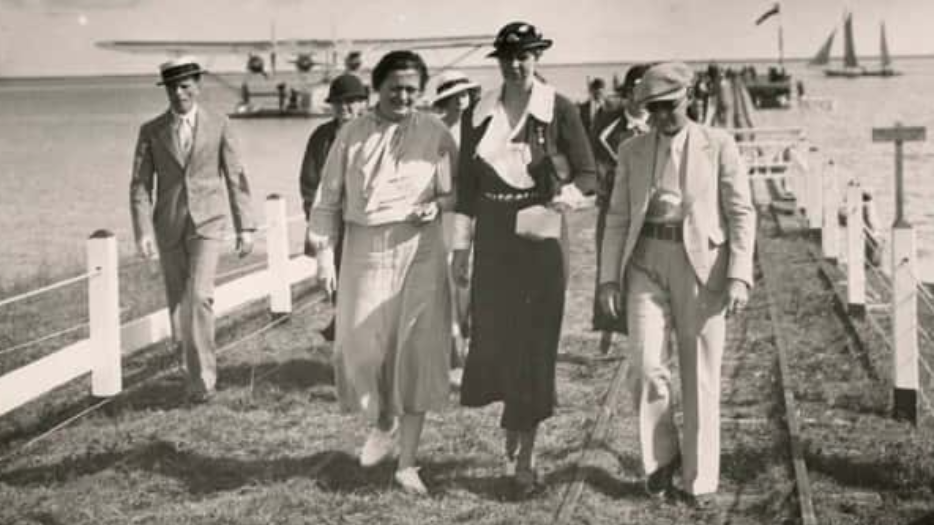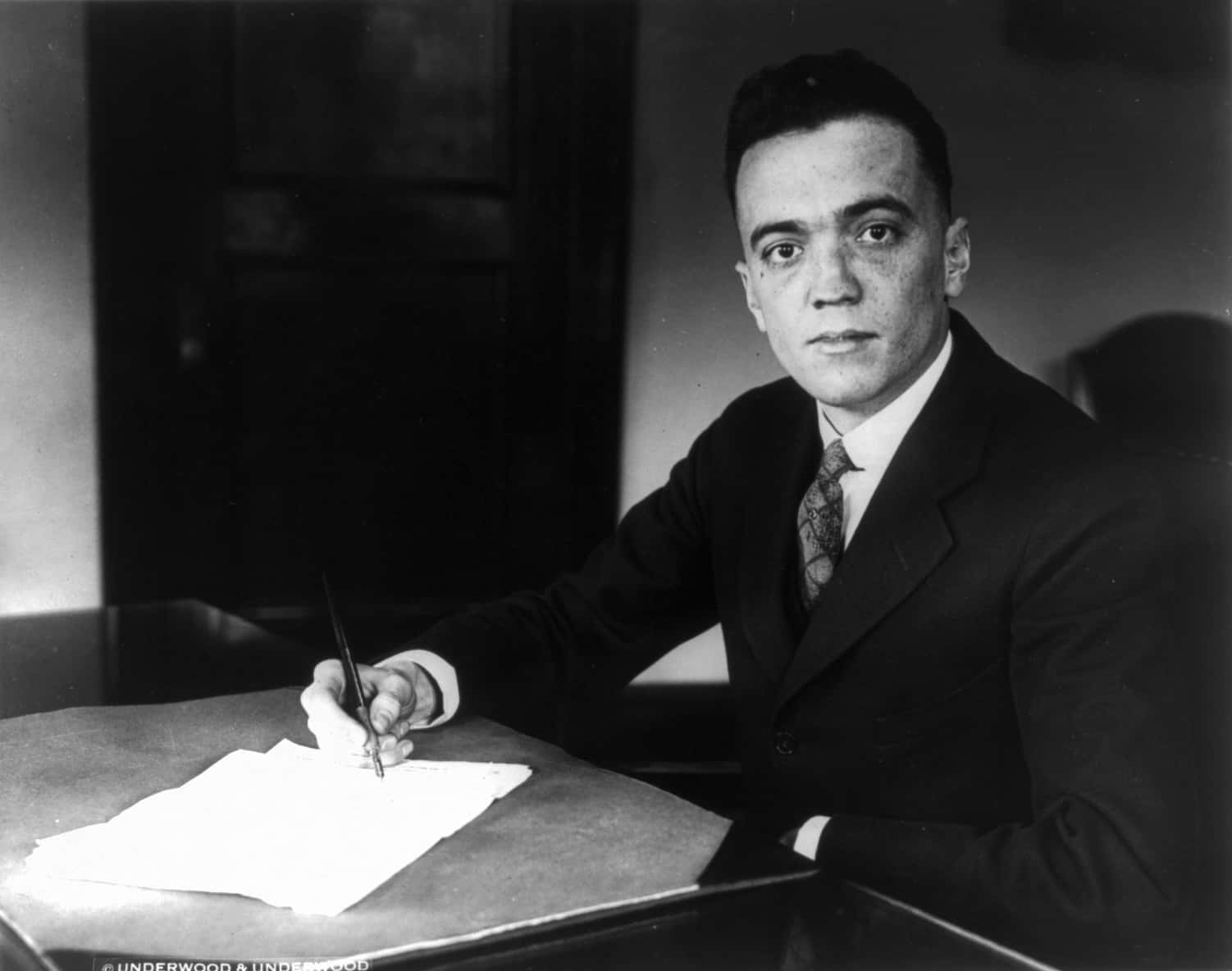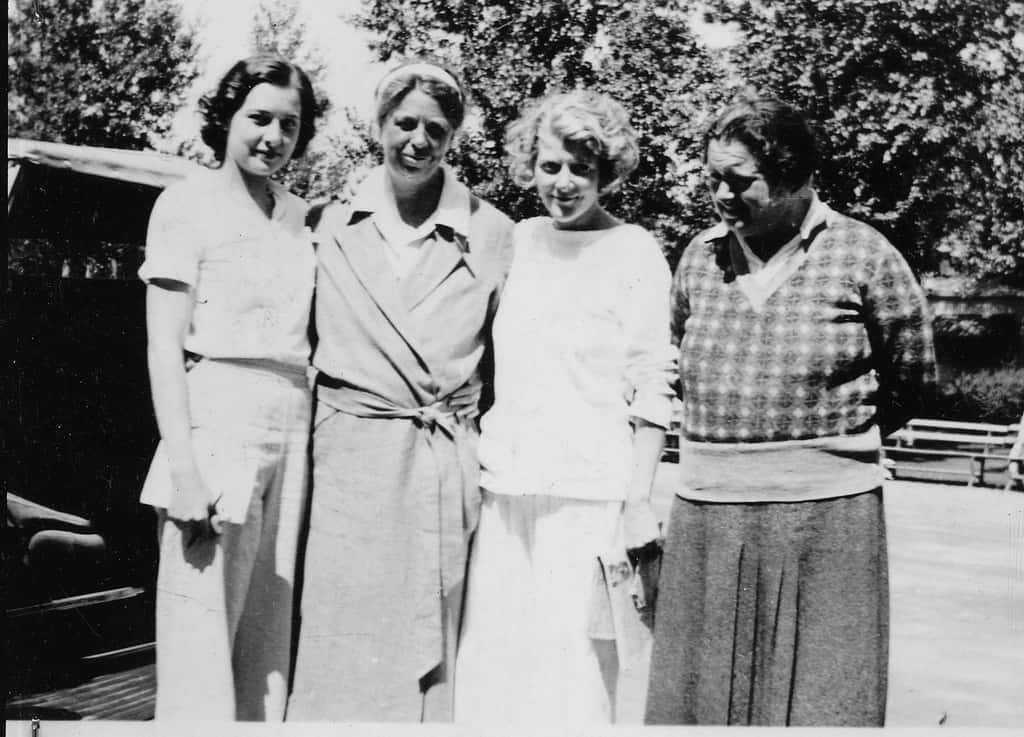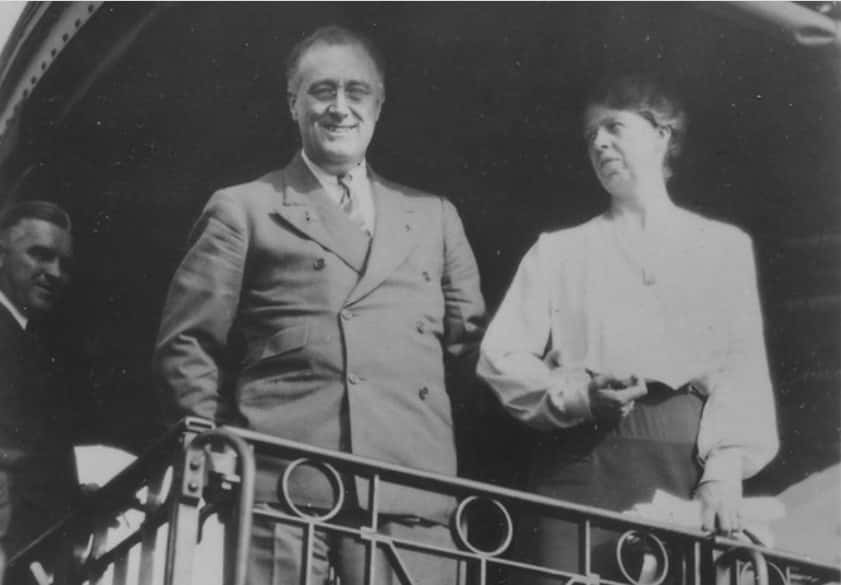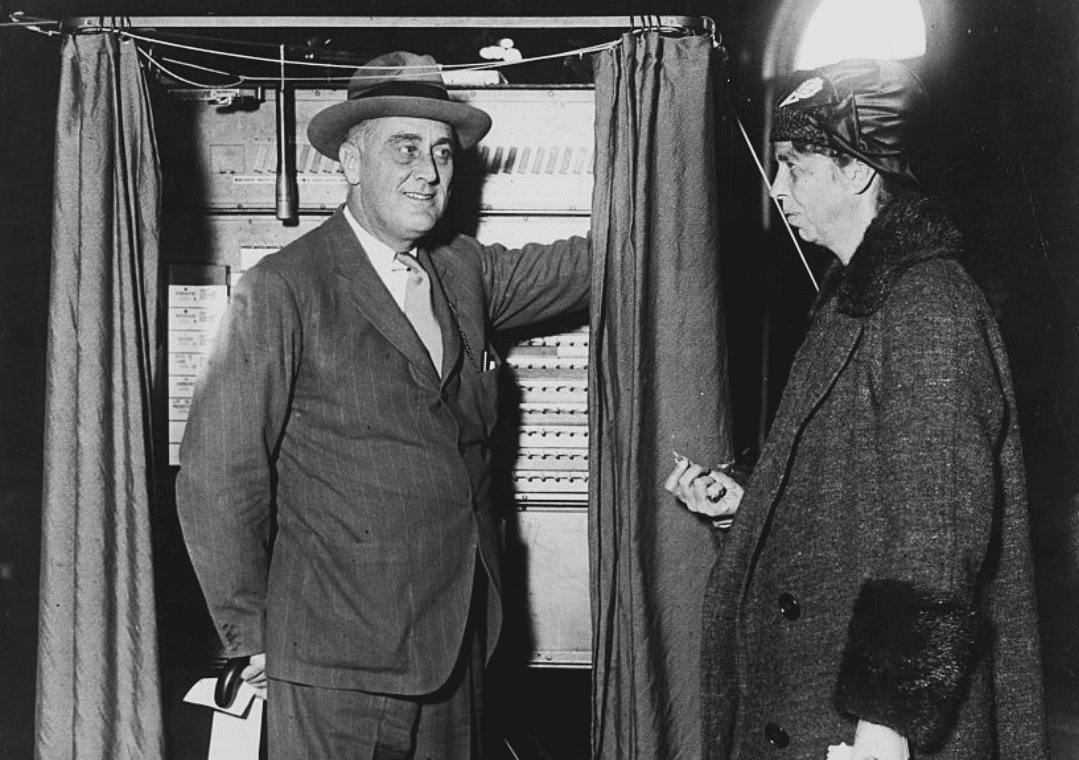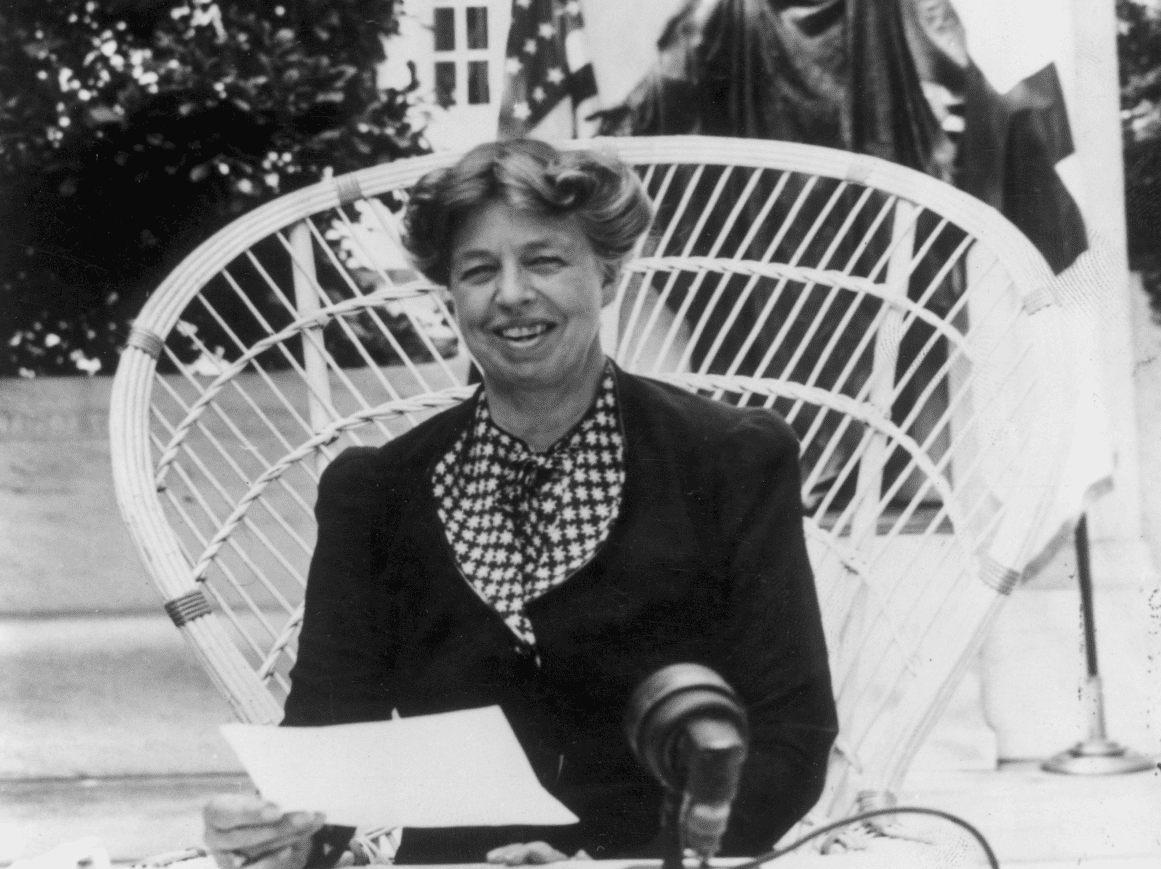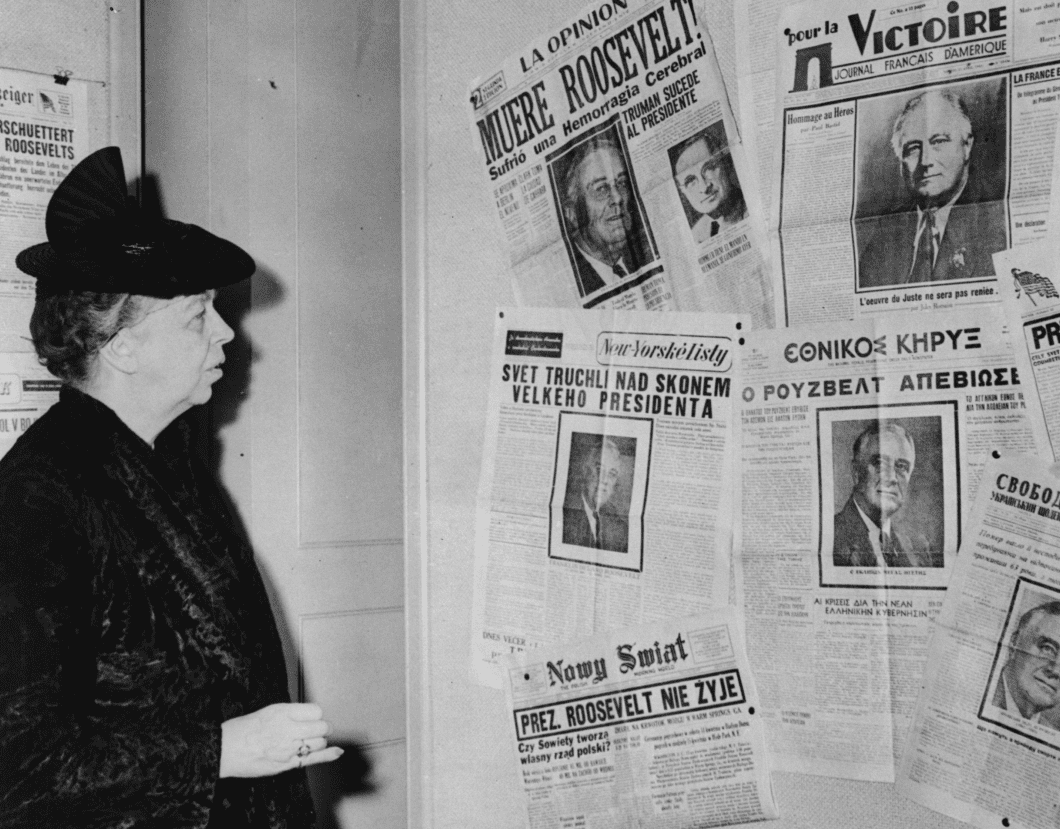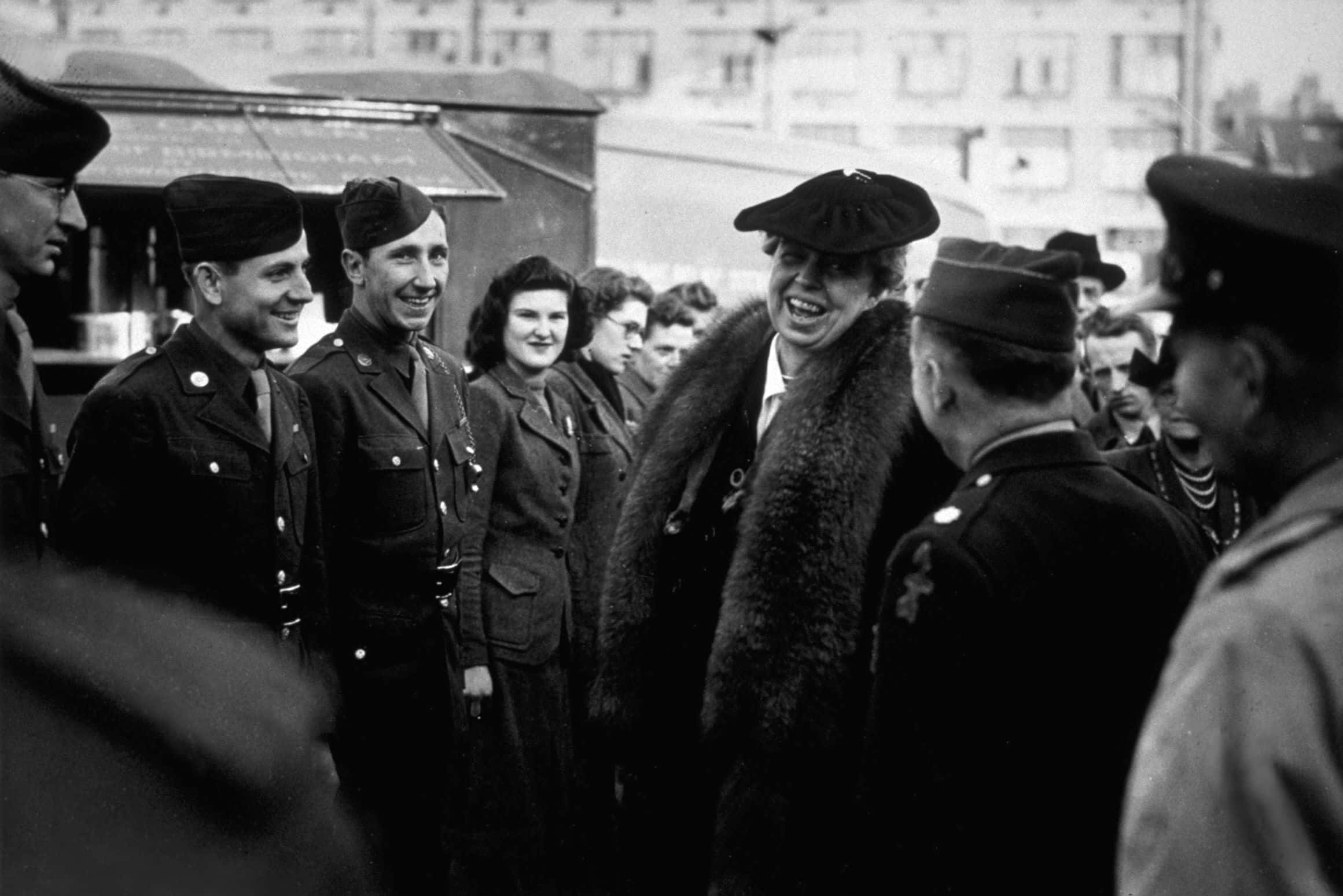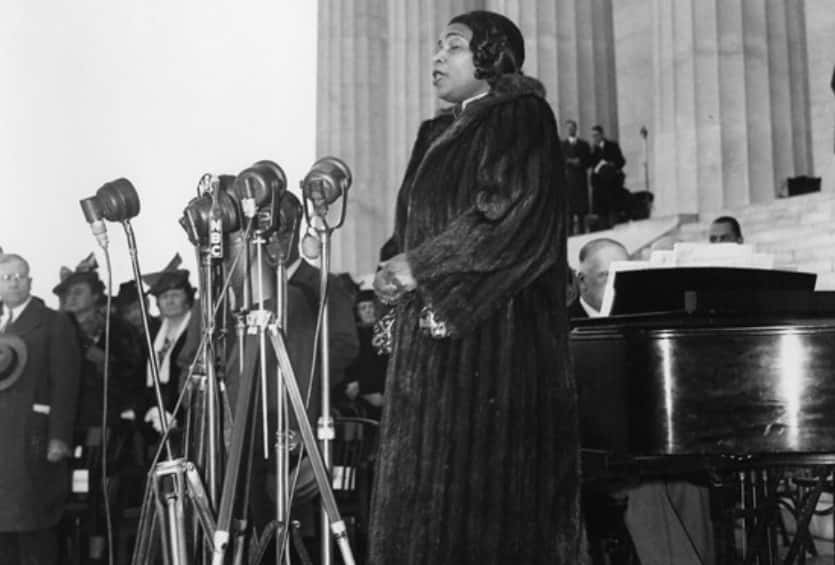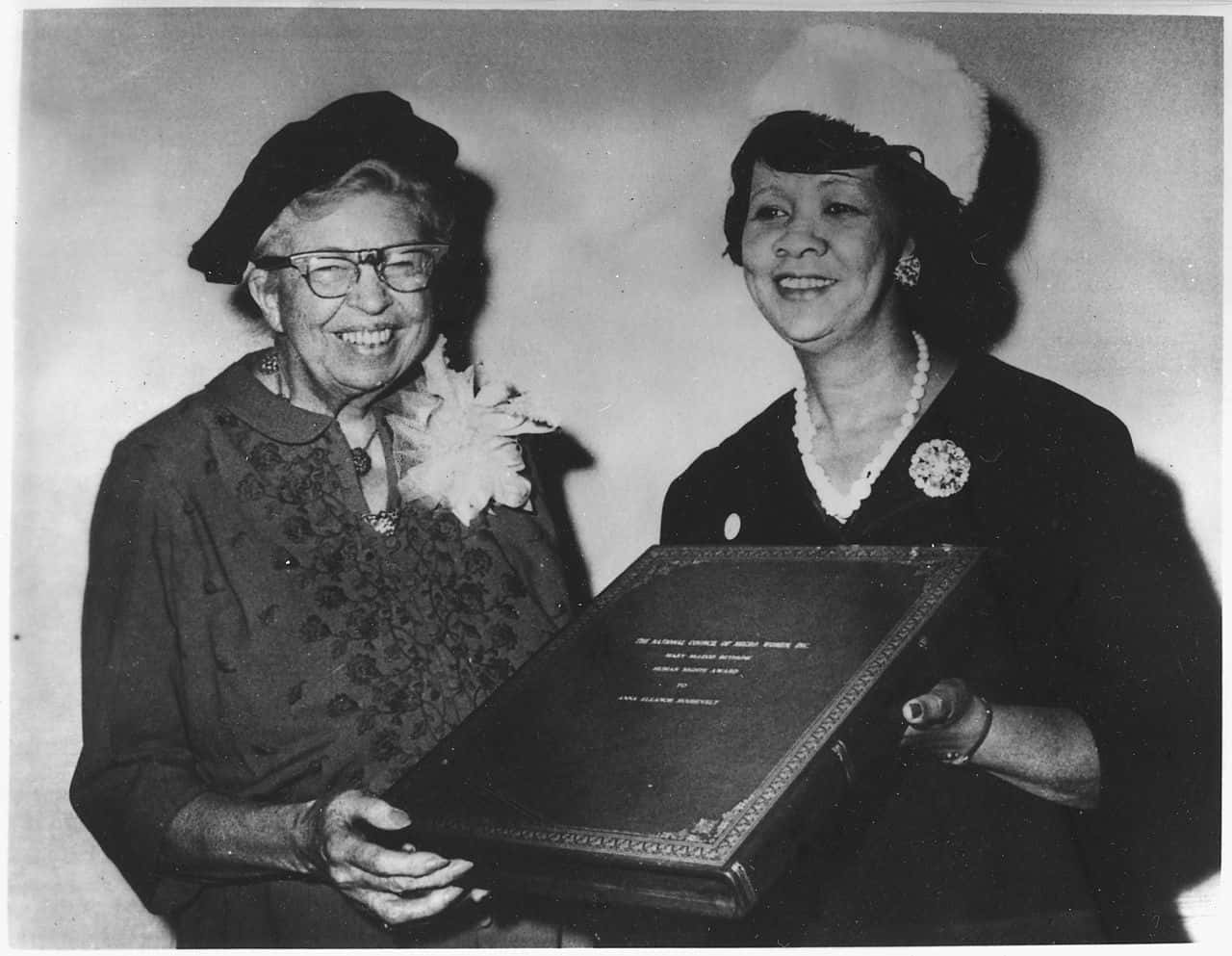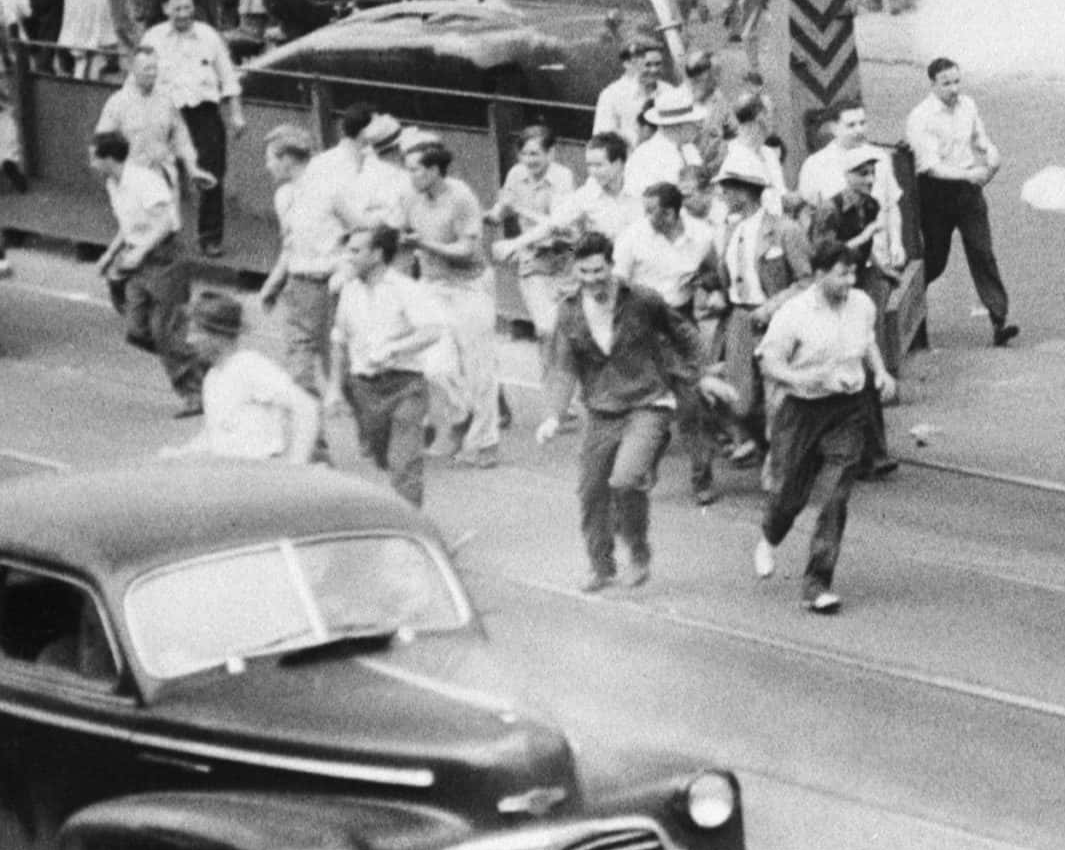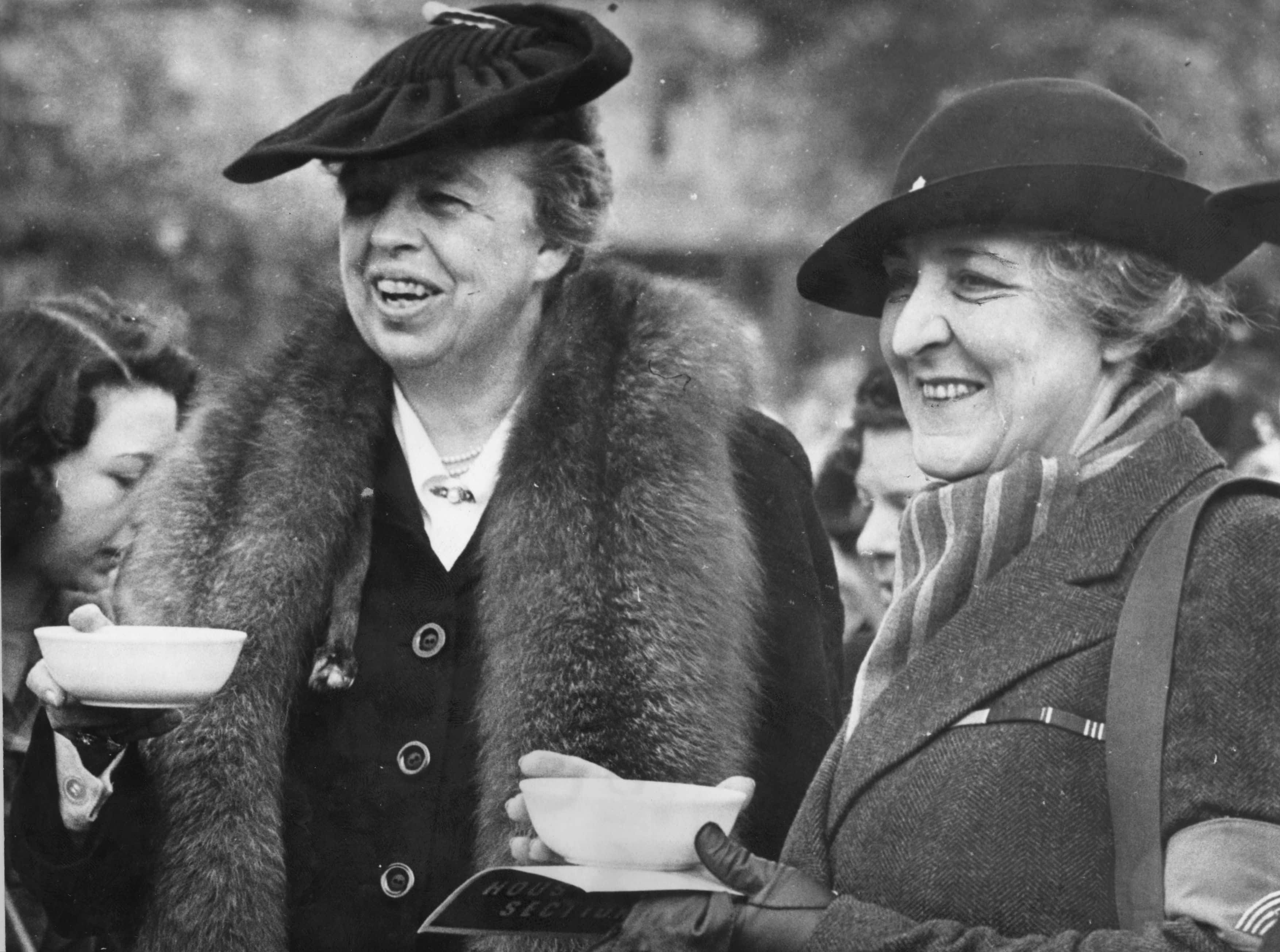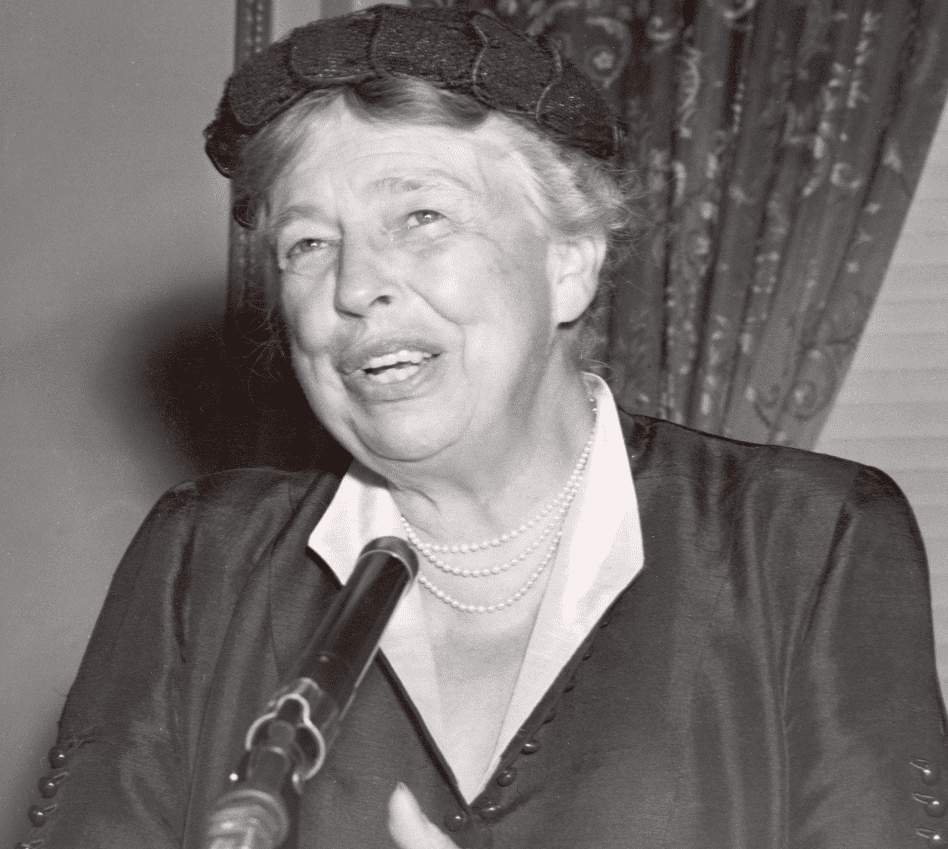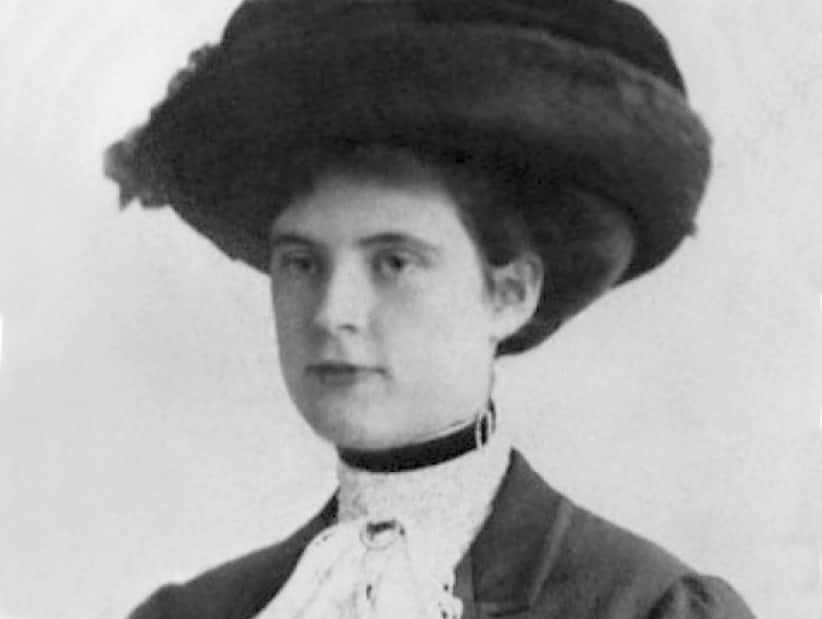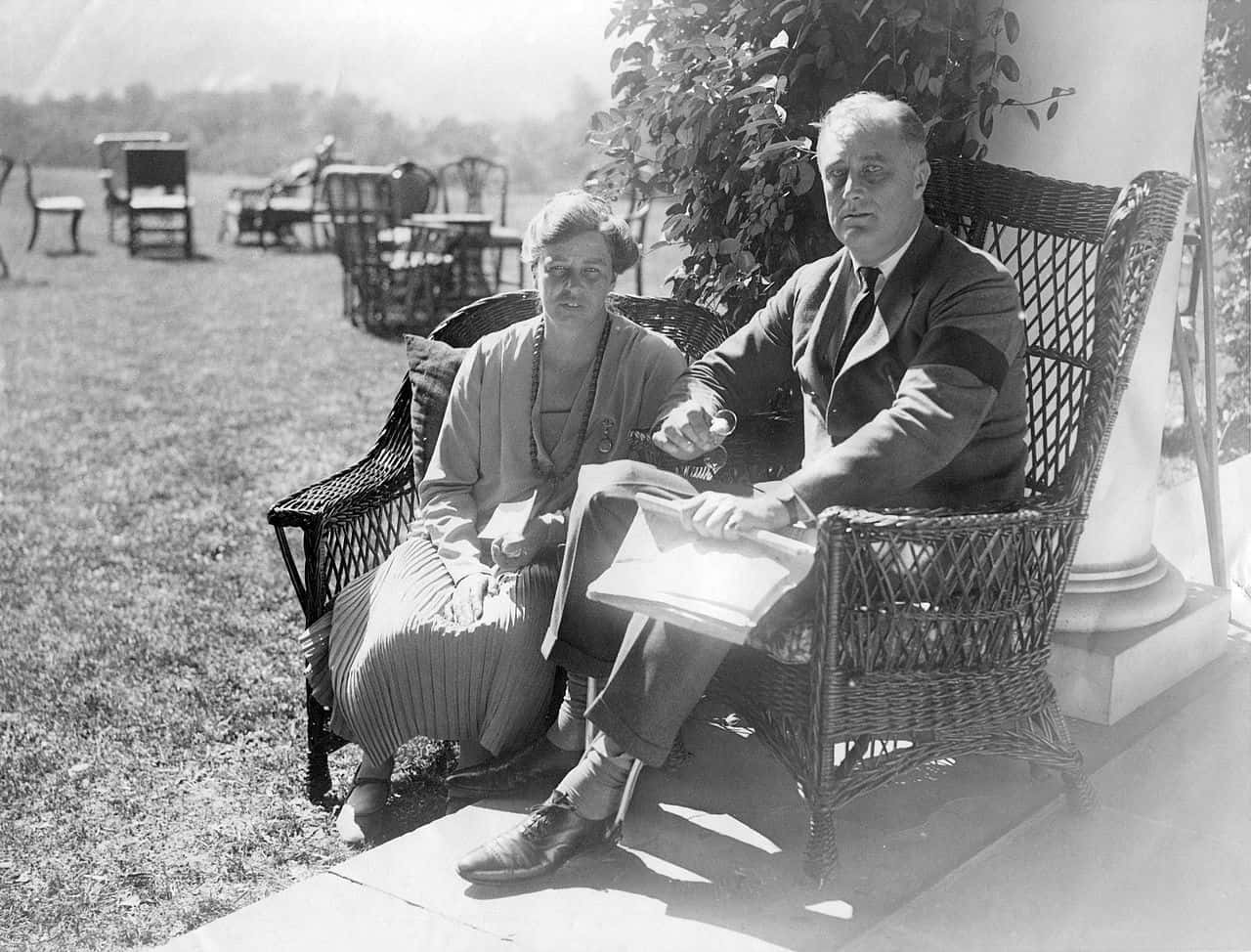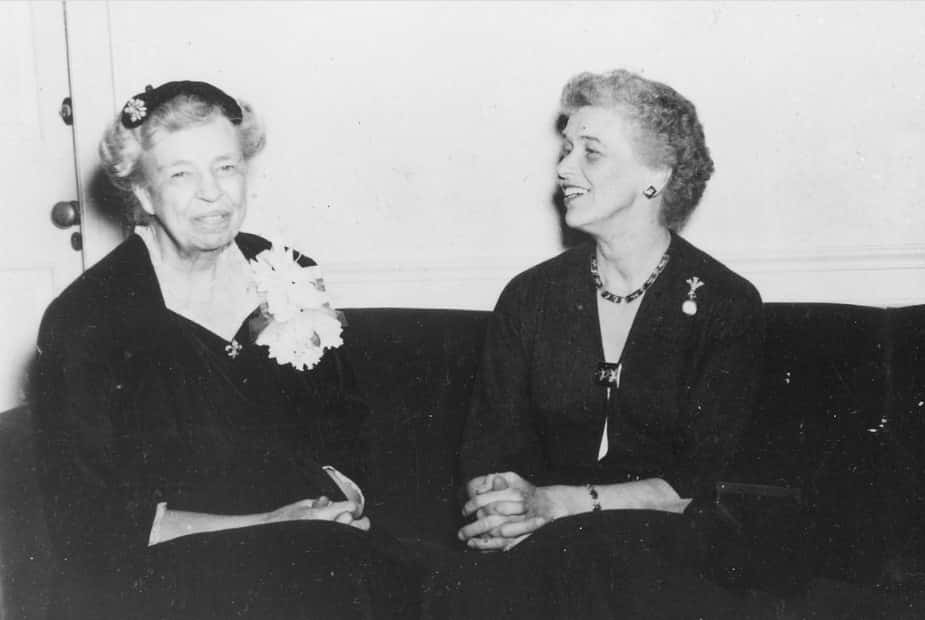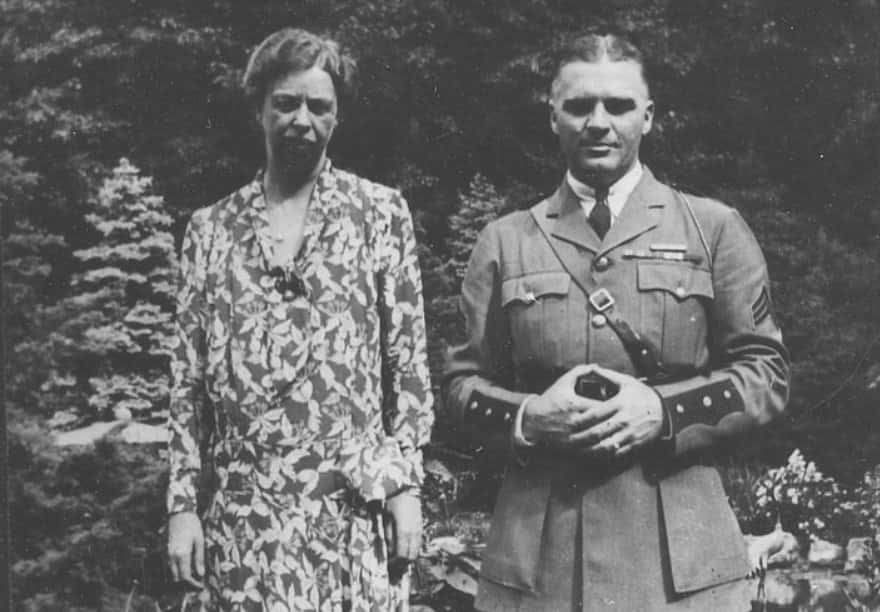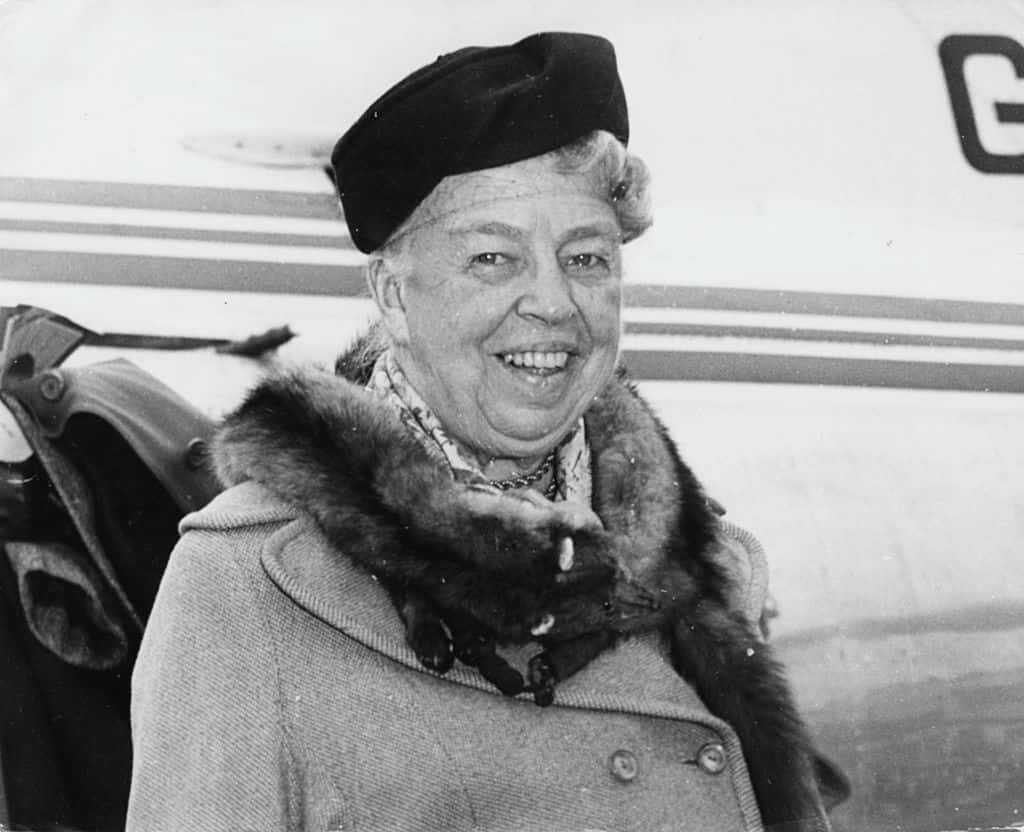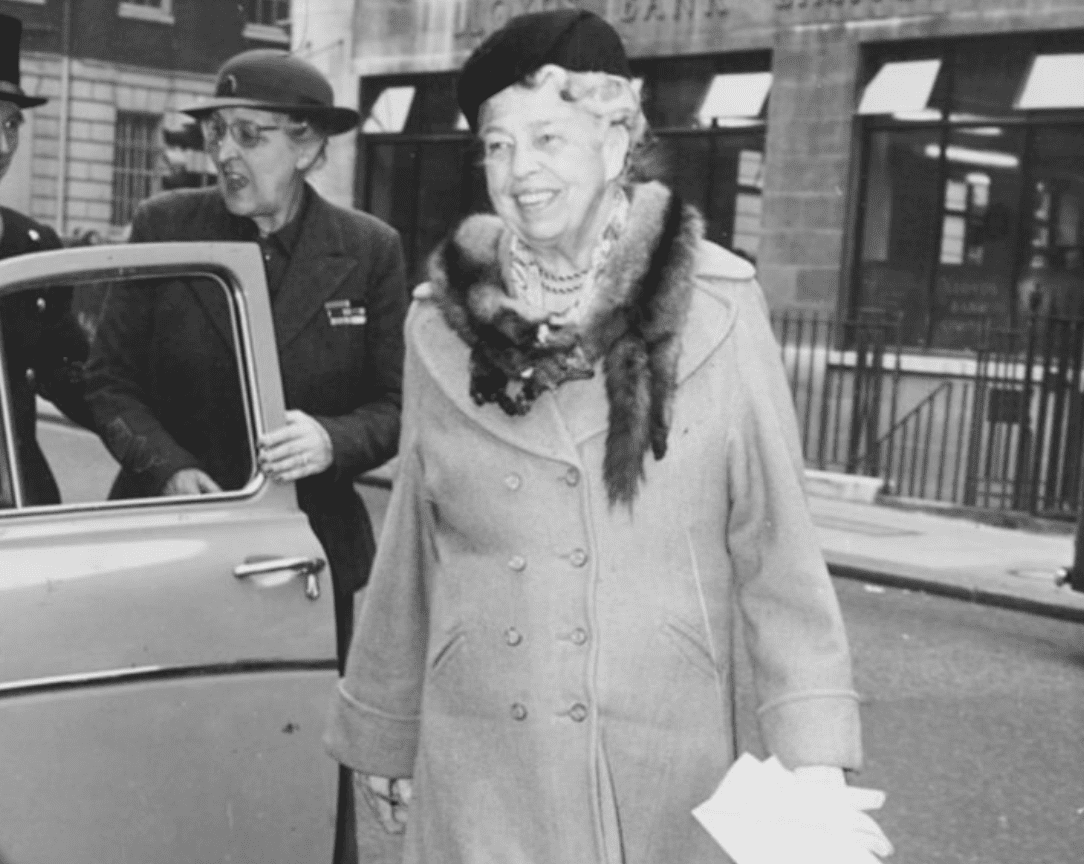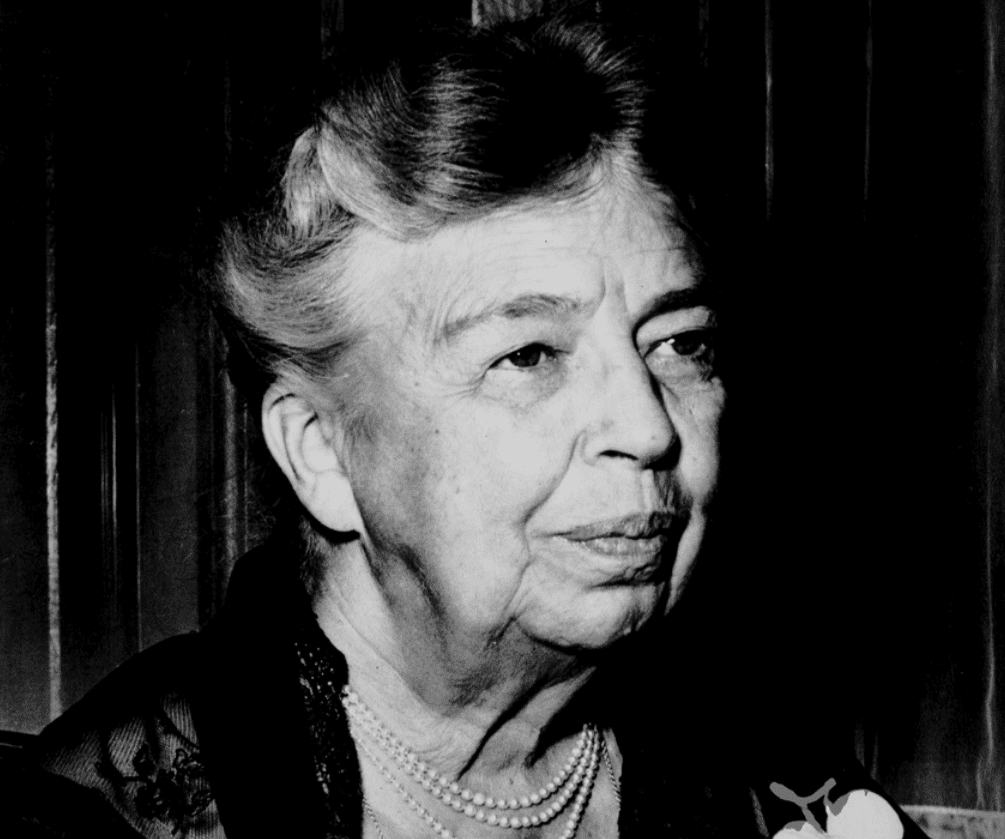A marriage poisoned by secrets. A lesbian love affair. And a first lady dogged by controversy. Right to the bitter end, Eleanor Roosevelt transformed the White House into a den of scandal—and her story is as empowering as it is twisted.
1. She Was A Poor Little Rich Girl
Born to wealthy socialites Anna Hall and Elliott Roosevelt, Eleanor made her grand entrance on October 11, 1884. Growing up smack dab in the middle of New York high society, young Eleanor was the picture of privilege. But although her life seemed enviable, her childhood was not a fairy tale. From the very beginning, her mother resented her—and for one heartbreaking reason.
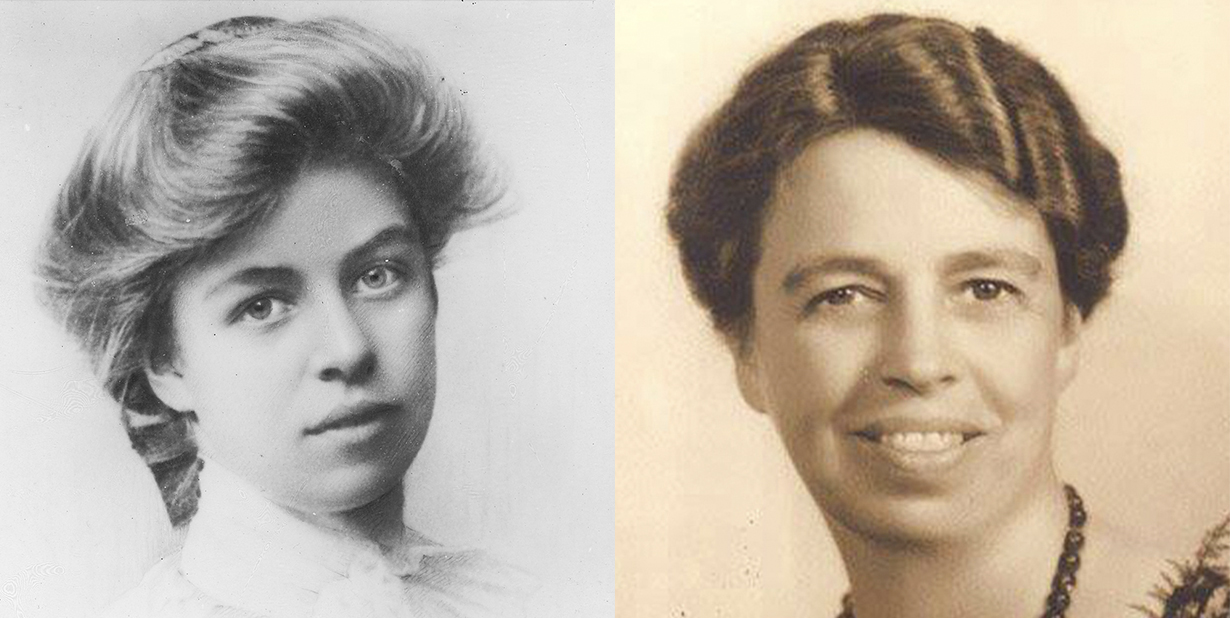
2. Her Mother Was Ashamed Of Her
In the eyes of her mother, Eleanor's "plainness" was shameful. Her looks inspired a coldness in the one person she looked to for unconditional love. To make matters worse, her mother also had the habit of calling her "Granny" because of her grave and introspective personality. But this was the least of her problems. Over the next decade, Eleanor would come face to face with a succession of life-changing tragedies.
3. She Was In A Terrible Accident
When she was only two years old, Eleanor Roosevelt and her family were traveling aboard the SS Britannic—but it was a doomed voyage. On May 19, 1887, the ship crashed into the SS Celtic. The ensuing chaos swept little Eleanor up in a dramatic evacuation, her family escaping on lifeboats back to the safety of New York. Sadly, it affected the young girl in a terrible way.
4. She Had A Lifelong Phobia
After the formative trauma of the SS Britannic collision, Eleanor carried a phobia with her for the rest of her days: She was deathly afraid of ships and the sea. Oh, but that was only the beginning. In 1892, she suffered her first real loss when her mother Anne succumbed to diphtheria. It was the first crack in her family's foundation—and it only spiraled from there.
5. She Suffered Unspeakable Losses
A year later, Eleanor's little brother, Elliott Jr. fell ill with the same infection that had taken her mother. He, too, did not survive. With two family members gone, Eleanor had only her father to look to for guidance—but to her horror, she watched helplessly as he fell off the deep end...literally. Perhaps of all her family members, his loss was the most disturbing of all.
6. She Watched Him Unravel
As an unhinged drinker, Elliot Roosevelt ended up in a sanitarium. However, during a fit of delirium brought on by withdrawal, he flung himself out a window. Although he managed to survive the fall, he still couldn't outrun the grim reaper forever. In 1894, Elliot suffered a seizure and passed. However, before the end came, the troubled man looked to his daughter Eleanor and made one last request.
7. She Grew Up Too Fast
Knowing that his family had fallen apart, Eleanor's father beseeched her to take on a huge responsibility—to become a mother to her little brother, Hall. She took this responsibility to heart and supported him throughout her life. Still, at only 14 years old, Eleanor still had a lot of growing up to do—and as she grew into a woman, her early tragedies became both her burden and the source of her superpower.
8. She Was The Ugly Duckling
Passed into the care of her grandmother, Eleanor continued to grapple with dark thoughts about her self-worth: She still considered herself an "ugly duckling." Luckily, even at a young age, Eleanor was incredibly bright and inquisitive—and it led her to an enlightened understanding of beauty. At 14, she wrote, "No matter how plain a woman may be, if truth and loyalty are stamped upon her face all will be attracted to her."
This revelation unlocked something crucial within Eleanor. And once she got rolling, she couldn't be stopped.
9. She Was The Popular Girl
In her teens, Eleanor's confidence only grew. Sent to a private finishing school, she broke out of her shell and captured the hearts of her peers. One of her cousins, Corinne, who also attended Allenswood Academy, described Eleanor as "'everything' at the school. She was beloved by everybody." For the first time in her life, Eleanor Roosevelt was popular.
But just as she was sinking her teeth into this fresh feeling, her grandmother beckoned her home for a dreaded tradition.

Sign up to our newsletter.
History’s most fascinating stories and darkest secrets, delivered to your inbox daily. Making distraction rewarding since 2017.
10. She Hated Her Debutante Ball
Like any wealthy socialite, Eleanor had to face her debutante ball, but she did so with apprehension. Having been away from New York society for so long, she felt like an outsider all over again. Later, in reminiscing on that stressful day, she described it as "simply awful." Little did she know, this was both the end of her troubled childhood and the beginning of her romantic life—one that would go down in history.
11. She Fell For Her Cousin
In 1902, the very same year of that disastrous debut, Eleanor met her future husband: Franklin Delano Roosevelt. But he wasn't exactly a stranger: Franklin just happened to be her fifth cousin. After running into one another on a train ride to Tivoli, they embarked on a secret romance, keeping their correspondence as hush-hush as possible—and probably for good reason.
12. She Made An Enemy
When Franklin's mother Sara learned about her son's love for Eleanor the following year, she was not enthused. In fact, she opposed the union so much, she tried everything in her power to squash the romance for good. When he announced that he'd chosen Eleanor as his future bride, she made him promise to keep the engagement hidden for at least a year. But her overbearing antics didn't end there.
13. Her Fiancé Wouldn't Budge
While waiting for her wedding day to arrive, Eleanor deked Sara's sabotage at every turn. Even when Franklin insisted that his choice was unshakable, his mother persisted. In 1904, she whisked him away on a Caribbean cruise, praying against all odds that the distance might put an end to the romance. Thankfully, he proved her wrong.
The happy couple managed to defy Sara's wishes for the time being—but sadly, Eleanor's nightmare had only just begun.
14. She Made The Front-Page News
Eleanor Roosevelt's wedding was a magnificent occasion. After all, her uncle Theodore—the American president, no less—walked her down the aisle in the place of her late father. He even gave the couple his stamp of approval, saying, "It is a good thing to keep the name in the family." The nuptials made the front page of The New York Times, and by all accounts, Eleanor seemed like the perfect blushing bride.
But after the dust settled, and she and Franklin returned from the honeymoon, her controlling mother-in-law reared her head once again.
15. She Couldn't Escape Her
Eleanor's tumultuous relationship with Franklin's mother Sara only intensified over time. It reached a whole new level of awful once the couple moved into a home...a home that Sara gave them. Unsurprisingly, there was a horrifying twist to Sara's generosity. You see, a pair of sliding doors connected this "gifted" townhouse to her own home, meaning that Eleanor's mother-in-law had overarching control over both households. It was a recipe for disaster.
 Getty Images
Getty Images
16. She Broke Down
Yup, Eleanor Roosevelt came to loathe her mother-in-law's interminable shadow. Their troubled relationship got so heated, it even incited a breakdown. Completely unhappy, she cried to Franklin, "I did not like to live in a house which was not in any way mine..." But no amount of tears or complaints could change the dysfunctional state of things. And yet still, that wasn't the worst part.
17. She Lost Her Children
Eleanor had a whopping six children with Franklin, but sadly, she never truly felt like their mother. Once babies entered the picture, her mother-in-law descended with full force and raised them how she saw fit. It felt as though she had stolen them from Eleanor. Eleanor's eldest son James even remembered how his grandmother once told him, "Your mother only bore you, I am more your mother than your mother is."
Trapped under Sara's thumb, Eleanor felt her agency slip through her fingers. But this wasn't the only source of her marital distress.
18. She Hated Intimacy
Despite having so many children, Eleanor Roosevelt did not enjoy sleeping with her husband. In fact, she absolutely hated intimacy, so much so that she even confessed to her daughter Anna that it was an "ordeal to be borne." Evidently, there were many soul-crushing aspects of marriage that she had never foreseen. It didn't seem like things could get any more miserable. But then, in 1921, life threw another harrowing curveball her way.
19. She Saved His Life
While on vacation with Franklin in New Brunswick, disaster struck. Franklin fell terrifyingly ill—and the diagnosis was bleak. He had a paralytic illness that, at the time, his doctors thought was polio. Eleanor stepped up to the plate. She threw herself into saving her husband, and without her careful attention, his illness might have proved fatal. Still, the consequences were dire.
20. She Was A Hero
Despite Eleanor's attentive nursing, Franklin Roosevelt's legs became paralyzed forever—and his disability wreaked havoc. While Eleanor persuaded him to stay in politics, her opinion railed against his mother's wishes. Sara wanted her son to bow out and retire. In many ways, Eleanor was the hero of the story. She not only saved her husband's life, but also saved the future of his career.
And even better? Eleanor finally had power at her fingertips.
21. She Broke The Shackles
Eleanor's strength during this trying time was a turning point. For the first time, she asserted her dominance over her awful mother-in-law and gained some much-needed independence. After staying so long in the shadows, it was finally her time to shine. She began standing in for her husband because of his disability, making countless public appearances and becoming an increasingly influential presence.
But it wasn't all upstanding and clean-cut politics for Eleanor. Oh no, she wasn't above sparking a little drama.
22. She Got Caught In The Middle
The Roaring Twenties were as exciting for Eleanor as they were for everyone else—but she did find herself going head-to-head with her Republican cousin, Theodore Roosevelt Jr. On one infamous occasion, she got caught in the middle of a titillating spat between her husband and her cousin. Franklin had condemned Theodore's involvement in the Teapot Dome Scandal, causing this family drama to explode in the worst way possible.
23. She Sought A Petty Revenge
Eleanor's cousin Theodore insulted her husband by saying, "He's a maverick! He does not wear the brand of our family." Inferno hath no fury like a woman scorned, because Eleanor went into full attack mode. She made it her mission to derail Theodore's campaign, even reverting to underhanded tactics. Most memorably, she followed him in a car with a huge teapot on top, to remind voters of his scandal. But that wasn't all.
24. She Cut Him Down To Size
Eleanor countered Theodore at every turn and her comeback speeches were bitingly effective, honing in on his immaturity. In the end, Eleanor felt the glow of victory when the Democrats beat out her cousin by 105,000 votes. It was a terrible hit for Theodore and, understandably, he never forgave her. One thing was for sure: Eleanor was no longer the silent housewife—she was a force to be reckoned with.
25. She Fell In Love With A Woman
The 1930s marked a huge shift in Eleanor Roosevelt's life—both professionally and romantically. You see, as devoted as she was to her husband and his upcoming presidential campaign, their marriage wasn't exactly a passionate romp. She had to look for closeness elsewhere, and boy did she ever. Enter: Lorena Hickok, a reporter for the Associated Press who had the future first lady's head on a swivel.
26. She Wrote Her Scandalous Letters
Lorena "fell madly in love" with Eleanor while covering the presidential campaign. It was an old-school romance, with Eleanor penning 10- to 15-page letters to Lorena, stating scandalous affection for her. For instance, she wrote, "I want to put my arms around you & kiss you at the corner of your mouth." But this was only the tip of the iceberg.
27. She Wore It To The Inauguration
One of Eleanor's letters also read, "I can't kiss you, so I kiss your 'picture' good night and good morning!" Their burning adoration for another was crystal clear, even on the day of Franklin's 1933 inauguration. During this exciting moment, Eleanor wore a tell-tale sapphire ring—a present from Lorena herself. However, considering the gravity of Eleanor's new position as the first lady, if they were ever found out, the resulting scandal could destroy her.
28. She Angered The FBI
Eleanor Roosevelt wasn't without her enemies. In fact, FBI Director J. Edgar Hoover kept a massive file on the First lady, which eventually grew to an astonishing 3000 pages. He hated her with a passion for criticizing his surveillance tactics and for her prevailing liberalism. Reportedly, he had evidence of Eleanor's forbidden relationship with Lorena which he hoped to use as blackmail.
Of course, the risk of being found out didn't stop Eleanor from following her heart...in more ways than one.
29. She Was A Lesbian
Eleanor's lesbianism has sparked unbelievable debate, with many wondering whether her relationship with Lorena ever became physical. Some even tried to assert that it was only a childish crush. However, in this case, the writing was on the wall. Eleanor helped Lorena get a job as an investigator just so they could be closer, and moreover, their winding, heartfelt letters spoke for themselves.
Still, when it came to White House drama, Eleanor was just getting started.
30. She Fell For Her Bodyguard
On top of this first affair, it seems as though Eleanor Roosevelt entertained another dalliance behind closed doors. This time...with a man. After meeting in 1929, she forged a strong friendship with her bodyguard, Earl Miller. At the time, Earl was only 32 while Eleanor was 44. He became her closest companion, teaching her multiple sports in her downtime. But that was only the beginning.
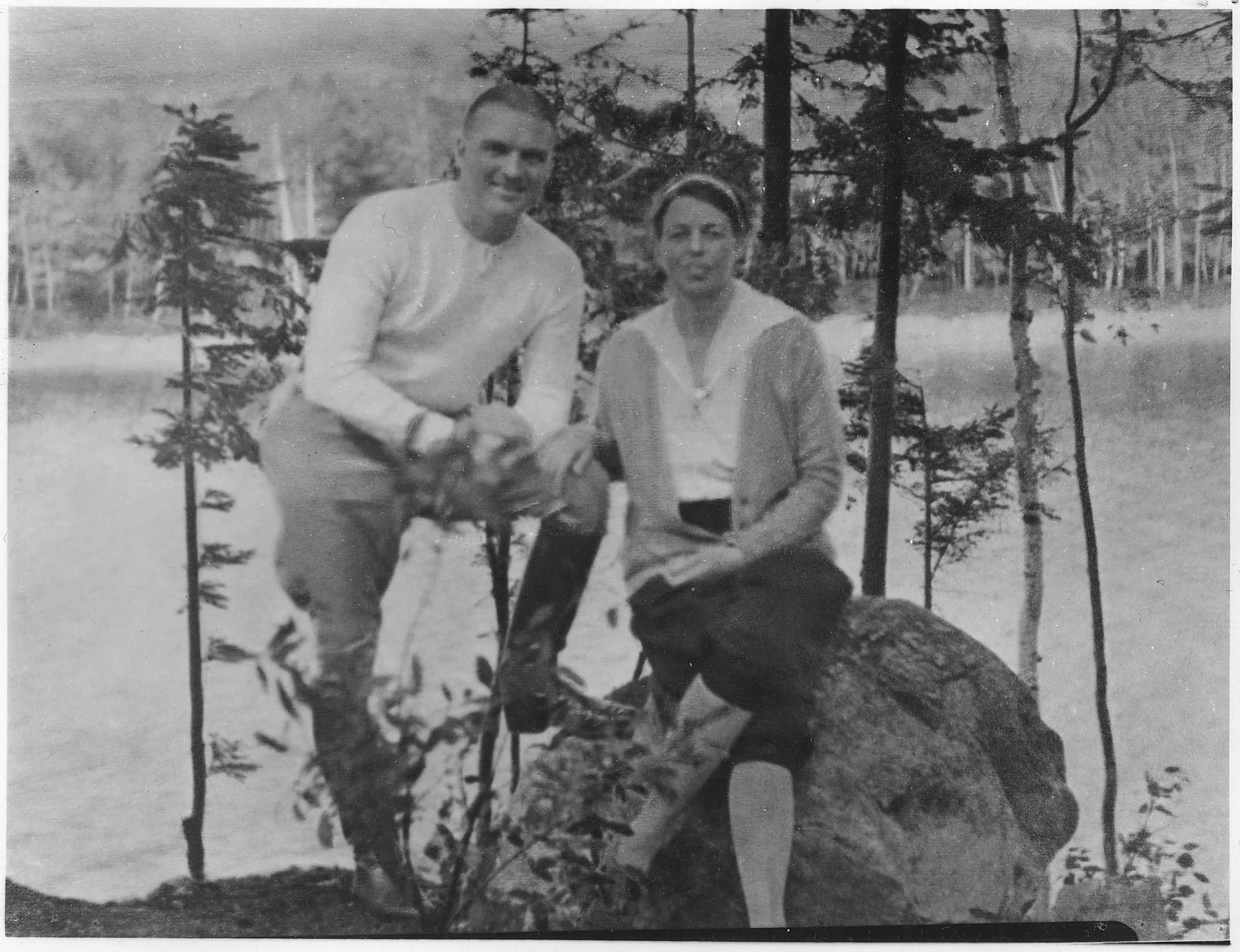 Wikimedia Commons
Wikimedia Commons
31. She Betrayed Her Husband
Eleanor was a devoted letter writer, and just as she'd spilled her heart out to Lorena, it's likely that she did the same to Miller. The two of them corresponded every single day, and biographer Blanche Wiesen Cook believed that Earl was Eleanor's "first romantic involvement" during these years. But if it seems like Eleanor consistently betrayed her husband behind his back, fear not. The president wasn't exactly innocent himself.
32. Her Marriage Bed Was Cold
While Eleanor was busy with her own secret romances, Franklin had a rumored affair with his secretary Marguerite "Missy" LeHand. With infidelity on both sides, the President and his First Lady seemed to tread the road to ruin. But surprisingly, that just wasn't the case. You see, they both still cared for one another deeply and acknowledged that they'd never be able to satisfy one another in a more intimate way.
For better or worse, they shared a partnership, and it was the president's encouragement that allowed Eleanor to soar to shocking new heights.
33. She Was A Reluctant First Lady
When Eleanor first stepped into her role as the first lady of the United States, she was terrified of becoming a powerless housewife. So she set out to break the rules in the best ways possible, quickly making her an immensely controversial figure. To begin with, she did not disappear into the background. She continued with her public speaking agenda and, in 1940, she was the first to make a speech at the national party convention. And once she got the ball rolling, it just didn't stop.
34. She Broke Tradition
Little by little, Eleanor broke down every boundary that the previous first ladies had faced. Another first? She penned a widely syndicated newspaper column called "My Day" and hosted a weekly radio program. But let's not forget her ultimate power move: She wanted to make as much money as the president himself. During her first year as the first lady, she made $75,000...and then gave most of it to charity.
On top of that, there was her voice—her opinion—her decision to speak out about the most divisive causes. This is what changed everything.
35. She Stood Up For Black Americans
Eleanor Roosevelt was a staunch supporter of the civil rights movement. In fact, on one infamous occasion, she broke a longstanding tradition and invited hundreds of Black Americans to the White House. She was also one of the few members of the administration to advocate for equal benefits for all races. Her opinions were non-negotiable, even when they threatened her own husband's position.
36. She Rocked The Boat
Eleanor never shied away from rocking the boat. In 1939, the Daughters of the American Revolution barred a Black performer, Marian Anderson, from singing at Washington's Constitution Hall. Scandalized by this infuriating twist of events, the first lady protested by resigning from the group altogether. Then she took it one step further. She organized another concert at the Lincoln Memorial, where Anderson could perform freely.
And let me tell you, this is only a taste of Eleanor's inspiring activism.
37. She Set An Example
After becoming friends with Black educator Mary McLeod Bethune, Eleanor Roosevelt appointed her to an influential position within the National Youth Administration, making her Director of the Division of Negro Affairs. But her personal openness did not squash the prejudice within the White House itself. To avoid any disgraceful upsets, the First Lady made sure to personally accompany Bethune into the building whenever she visited.
By giving such strong support to the Black community, Eleanor Roosevelt made herself enemy number one in the eyes of Southern white citizens—and she willingly paid the price.
38. Critics Tore Her Apart
In June 1943, critics turned their fiery gaze to the First Lady, blaming Eleanor for the race riots in Detroit. The haters were out for blood, but even so, she managed to turn the tables in one respect. Her popularity absolutely soared amongst Black Americans, turning many Republican voters into Democrats. Eleanor toed a dangerous line—and it was only going to get worse.
39. She Came To Their Defense
On December 7, 1941, a tragedy rocked the entire nation. Japan hit Pearl Harbor, effectively dragging the US into WWII. Suddenly, Japanese Americans found themselves under fire. Eleanor was outraged. Ahead of her time in every way, she railed against the Japanese-American prejudice and had the foresight to discourage "great hysteria against minority groups."
And here's where Eleanor and her husband started to clash seriously.
40. She Became An Enemy
To her horror, Eleanor's husband decided to place many Japanese citizens in internment camps—an order that she privately despised. In fact, her support of the Japanese population was so criticized, the Los Angeles Times even put out a call to have her "forced to retire from public life." Did this intimidate the first lady in any way? Absolutely not. As the conflict raged on, she was more than ready to get her hands dirty.
41. She Battled The President
Eleanor Roosevelt's focus turned toward conflict refugees. More than anything, she wanted FDR to invite more immigration groups into the country, especially the poor souls targeted by the Germans. But in this respect, he failed her. Instead of welcoming refugees with open arms, the president restricted immigration. Later, Eleanor's son James revealed some shocking behind-the-scenes insight.
42. She Had One Regret
Of all her controversial choices, there was one distressing moment that Eleanor never forgot. Her son James confessed that "her deepest regret at the end of her life" was that she had not made FDR accept more refugees fleeing Adolf H's horrifying regime. The inner struggle was real for poor Eleanor—and then tragedy struck the homefront in the worst way possible.
43. She Faced An Old Ghost
On April 12, 1945, the president suffered a cerebral hemorrhage and passed—but his sudden departure unleashed fresh drama in Eleanor Roosevelt's life. You see, an old ghost came around to haunt her. Her name was Lucy Mercer, Roosevelt's social secretary. To understand the gravity of Lucy's importance in Eleanor's life, we have to take a trip down memory lane—all the way back to the shocking events of September 1918.
44. She Found His Secret Letters
In the fall of 1918, Eleanor Roosevelt was unpacking one of her husband’s suitcases when she came across a bundle of letters. Curious, she opened them—and they changed her life forever. They were love letters sent from FDR to Lucy Mercer. The relationship was so intense, Franklin had even considered leaving his wife to be with his mistress. But that's not all.
45. She Felt The Sting Of Betrayal
Politically speaking, FDR couldn't leave Eleanor without risking his career, and both his advisors and his mother forbade him from seeking a divorce. And so, Eleanor and Franklin remained married, and, as we know, their romantic relations suffered. But this wasn't FDR's only betrayal. Shortly after his passing, Eleanor's daughter Anna came forward with a horrifying confession.
46. Her Daughter Knew All Along
According to Anna, there was one woman at her father's side at the moment of his passing, and that was Lucy Mercer. This was already a stunning revelation—but the blows just kept coming. Anna also told her mother that she'd been aware of her father's infidelity for a long time. Franklin and Lucy had kept their affair alive for decades, and everyone around him had expressly hidden it from Eleanor.
Of course, when it came to forbidden romances, Eleanor had her own secrets...
47. She Has One Mystery Left To Solve
Allegedly, Eleanor maintained a relationship with her bodyguard, Earl Miller, until her passing in 1962. They are believed to have corresponded every day, but all record of such communication has been lost. But where did these letters go? Rumor has it, they were locked away after Eleanor's demise, or purchased anonymously and destroyed.
Believe it or not, this wasn't the only skeleton in Eleanor's closet.
48. She Had A Skeleton In The Closet
As impressive as Eleanor Roosevelt's fight for civil rights was, her past boasted one unsavory truth. Back in 1918, she harbored her own prejudices against rich Jews. Once, she told her mother-in-law that the "Jew party [was] appalling...I never wish to hear money, jewels or sables mentioned again." Yikes. But wait, it gets even more appalling.
49. She Changed
As a co-owner of the Todhunter School in New York City, she expressed how she didn't want too many Jews to enroll because they were "very unlike ourselves." As horrifying as these views undoubtedly were, Eleanor Roosevelt proved that she was open to change. As she grew older and wiser, her anti-Semitism declined. By the time WWII hit and beyond, her perspective had shifted for the better.
50. She Succumbed To Her Illnesses
In 1960, shortly after being hit by a car in New York City, doctors diagnosed Eleanor with aplastic anemia. From then on, her health drastically nosedived. Two years later, her dormant tuberculosis became active in her bone marrow—and it spelled the end. On November 7, 1962, Eleanor Roosevelt passed from cardiac failure at the age of 78.


